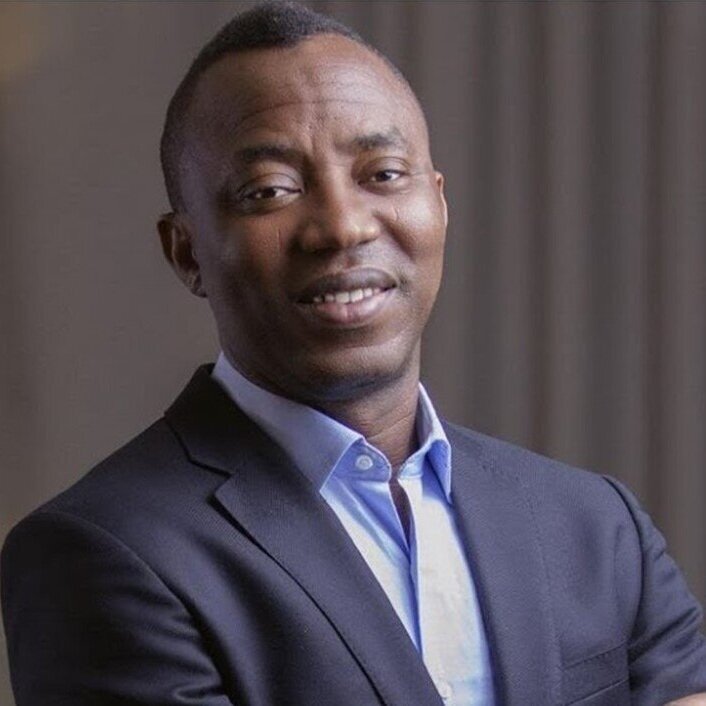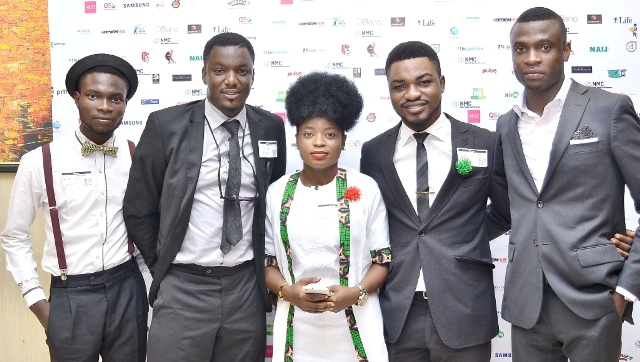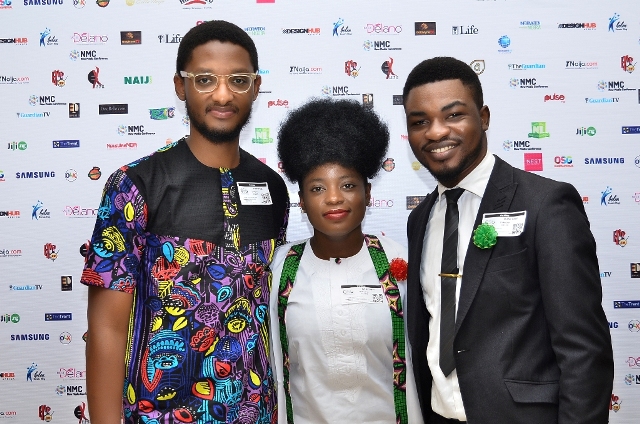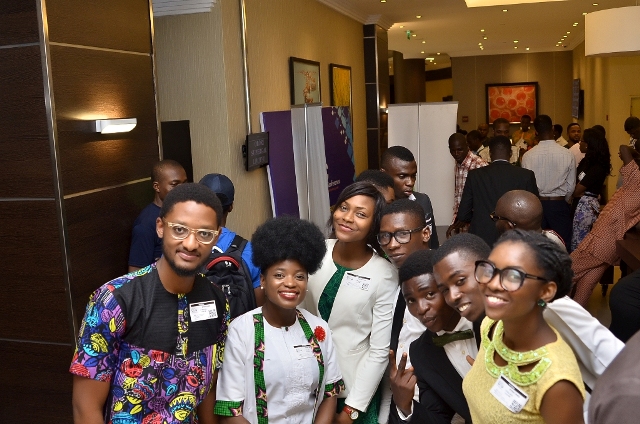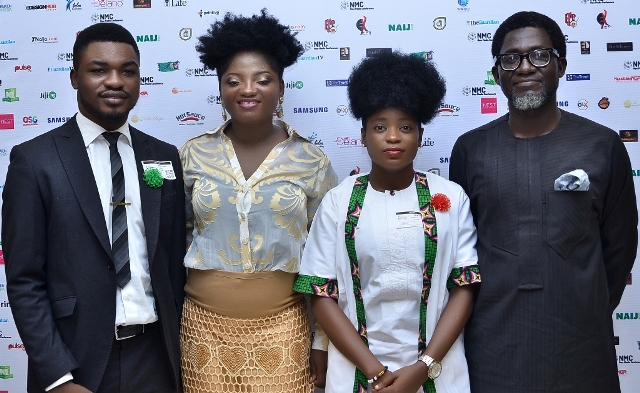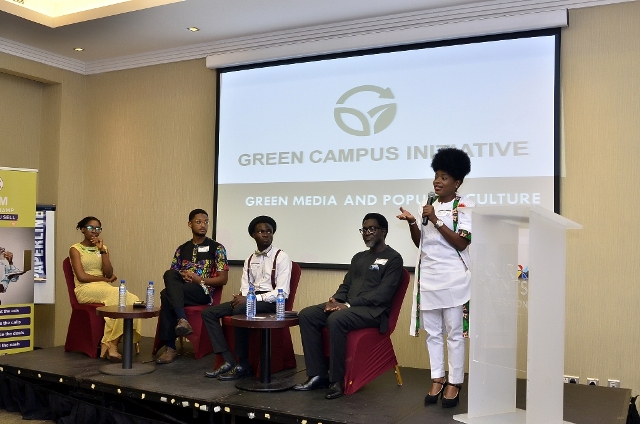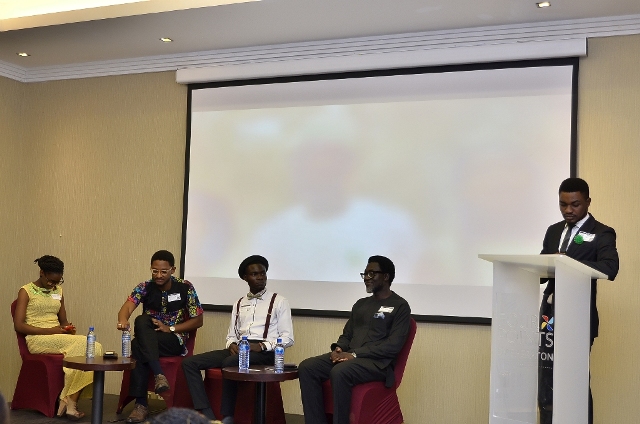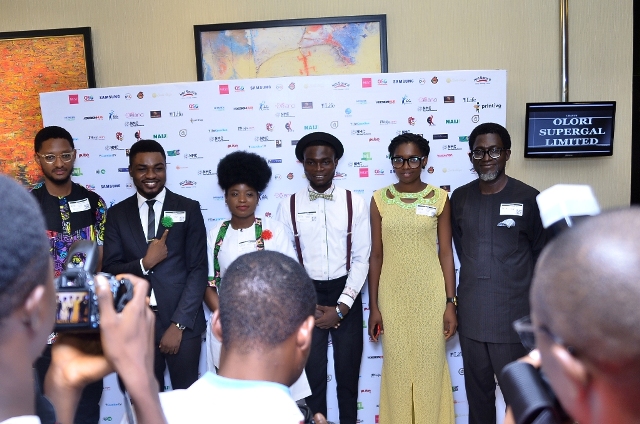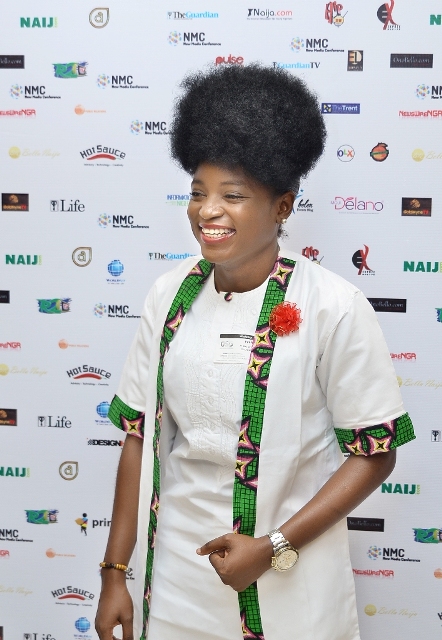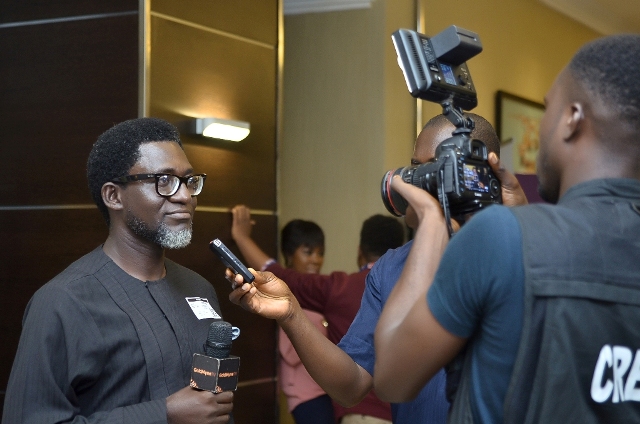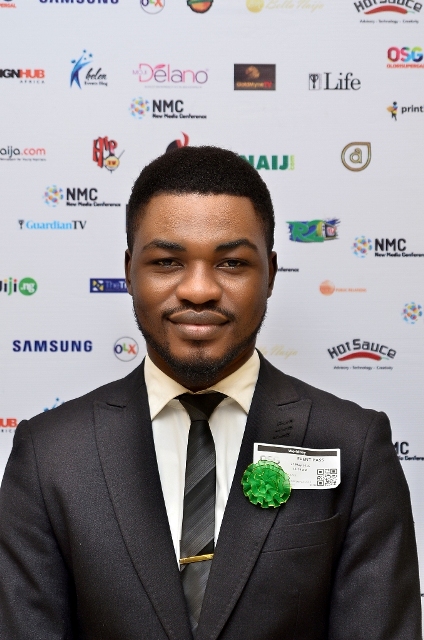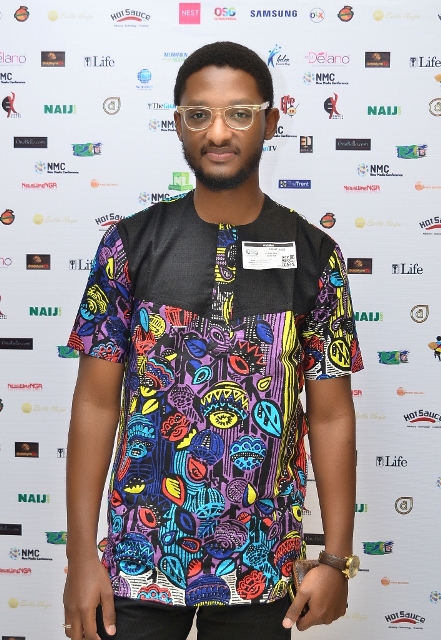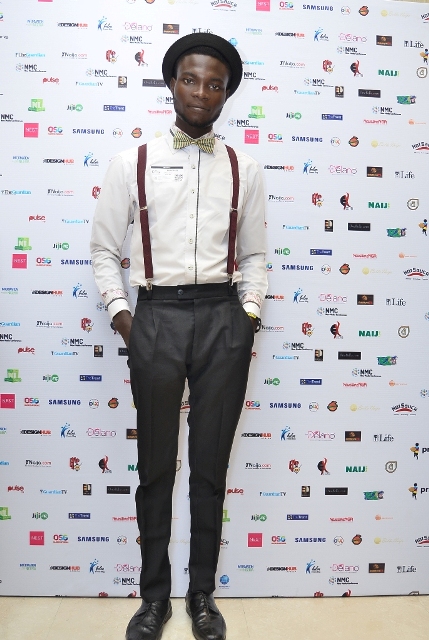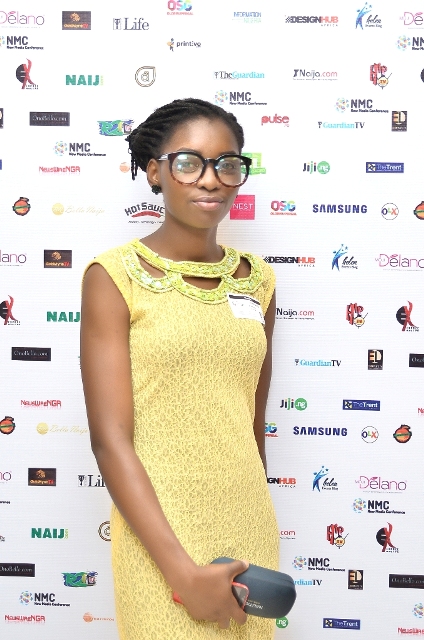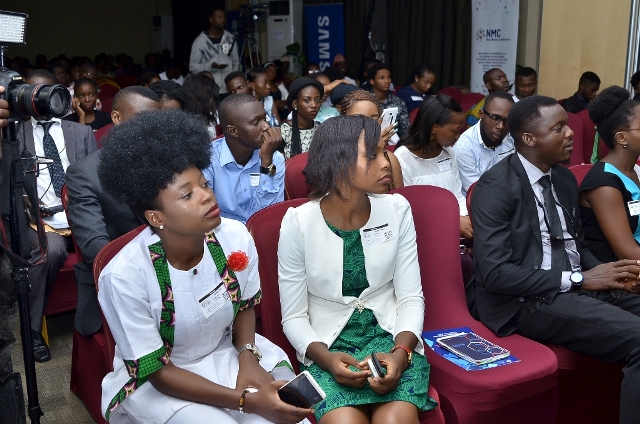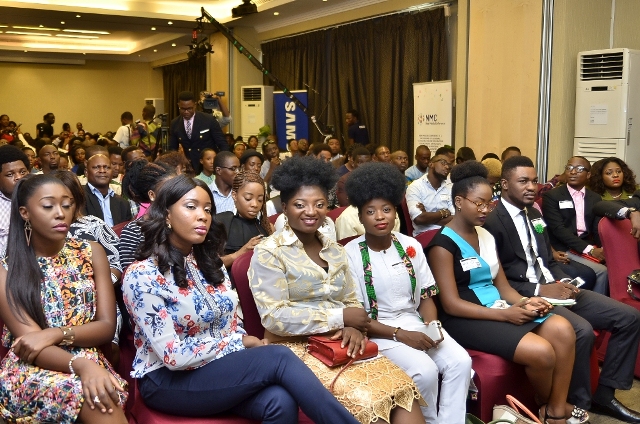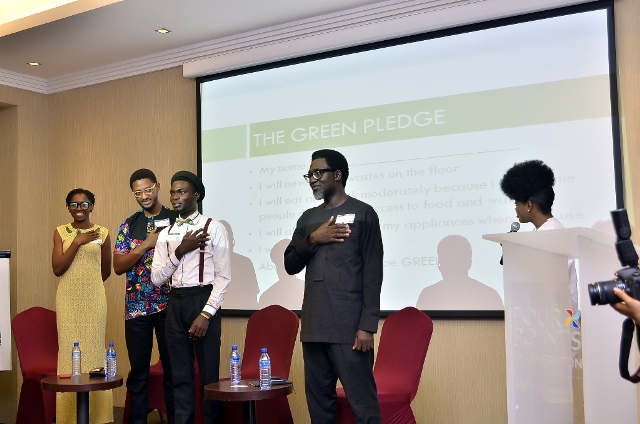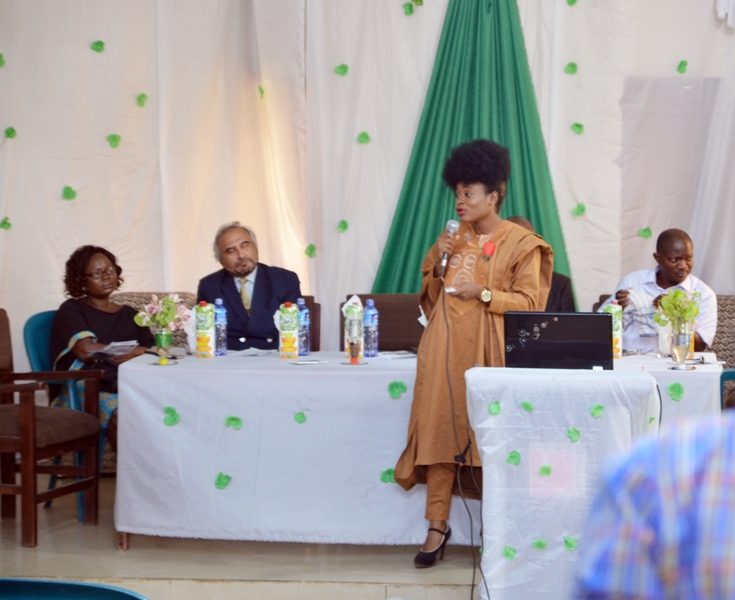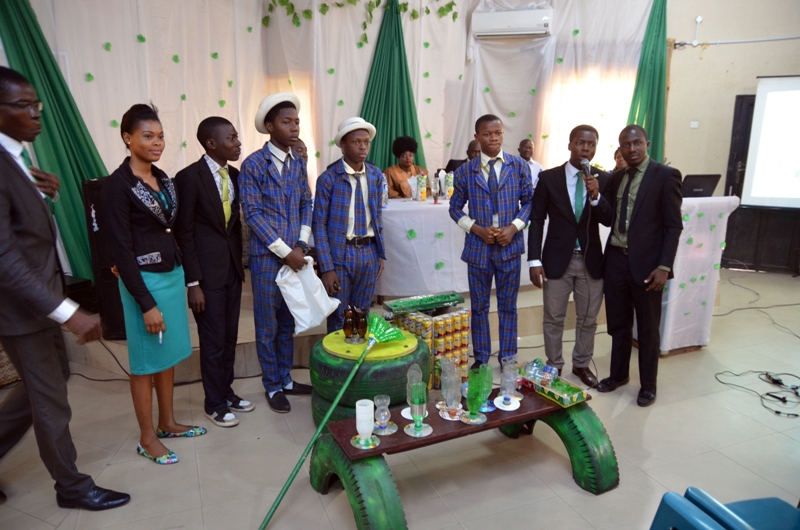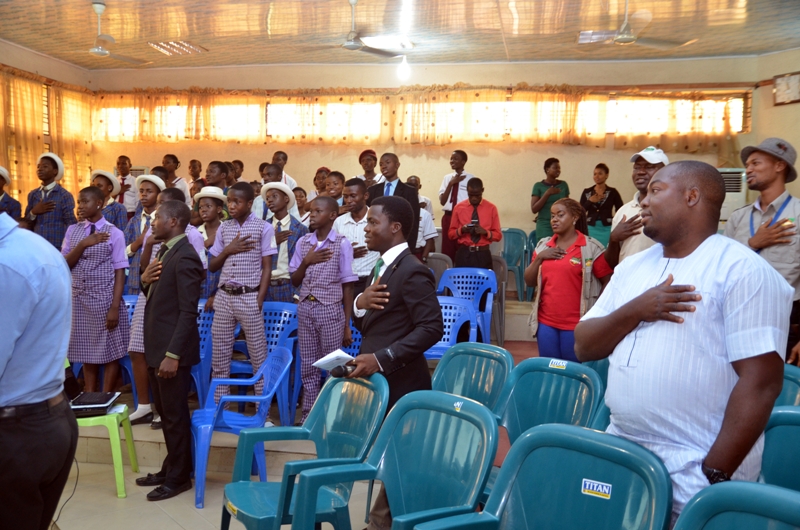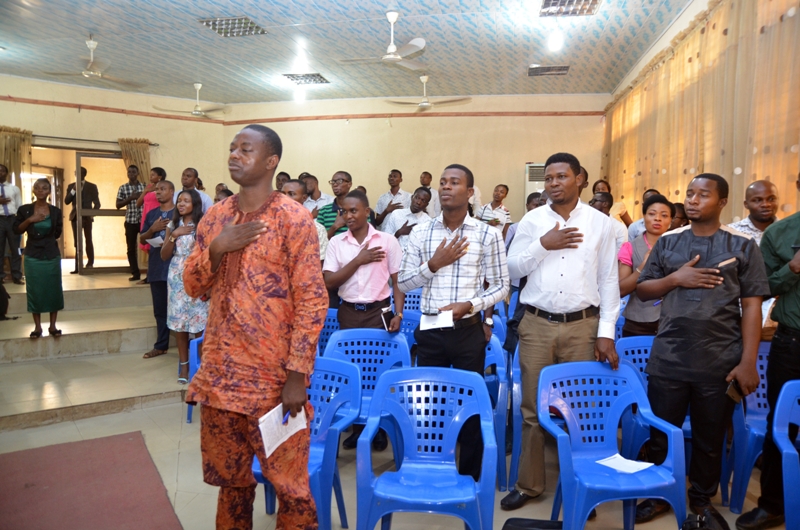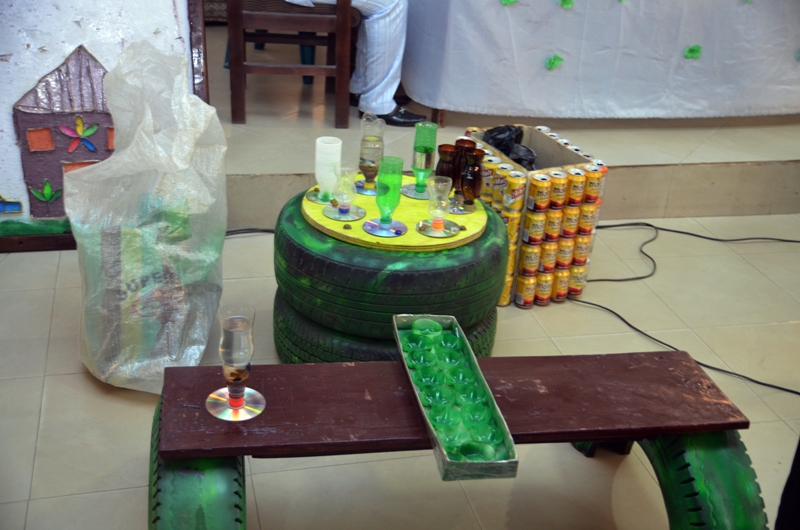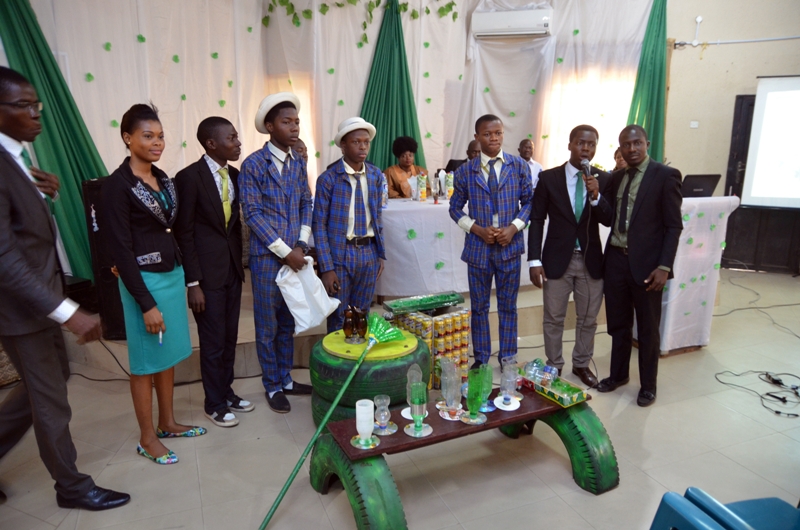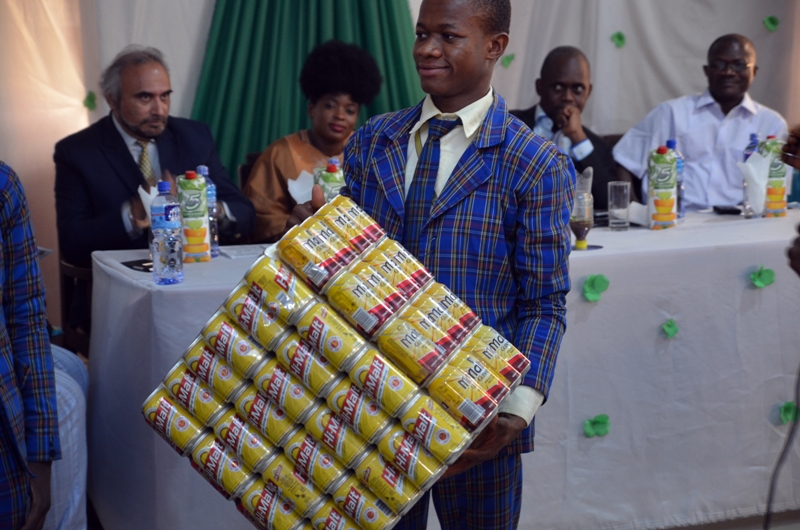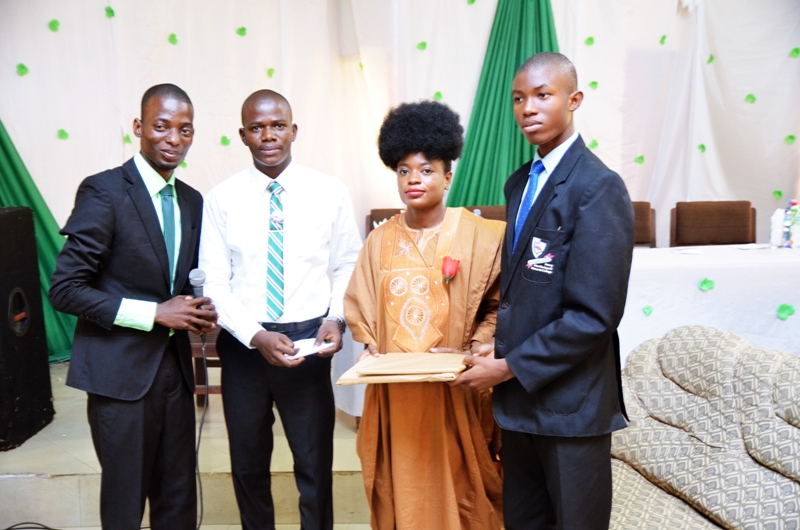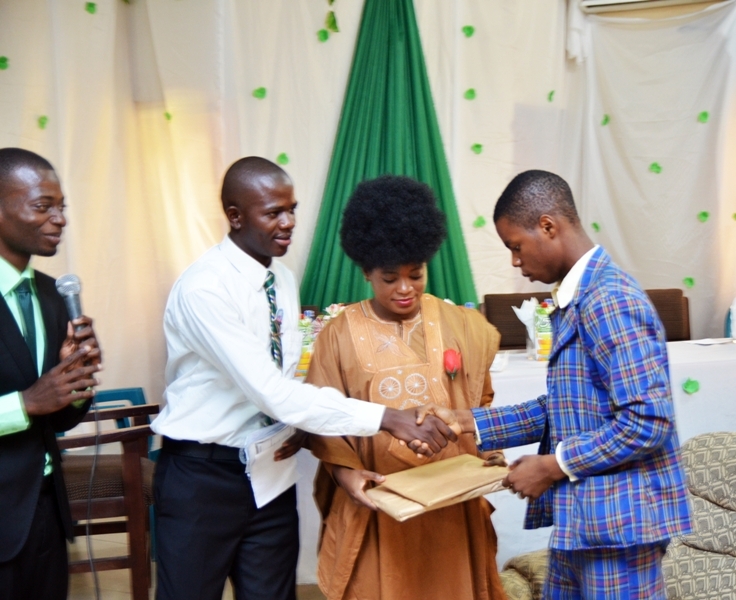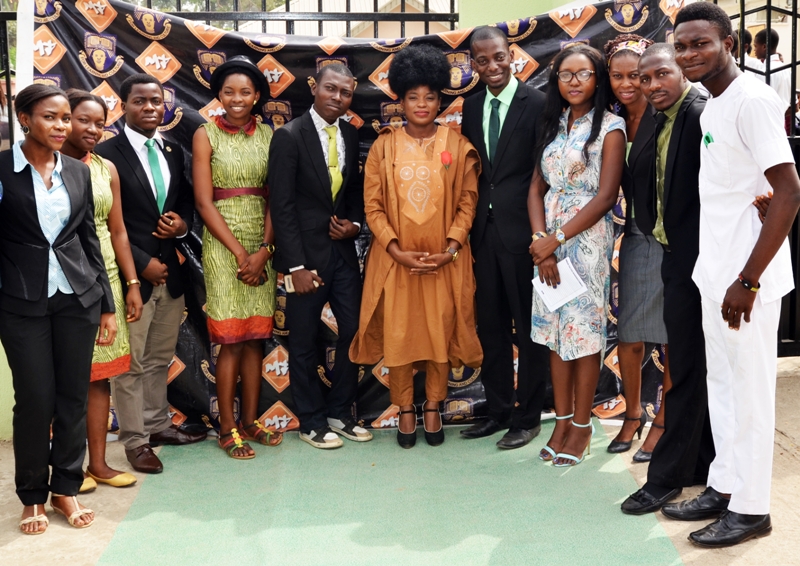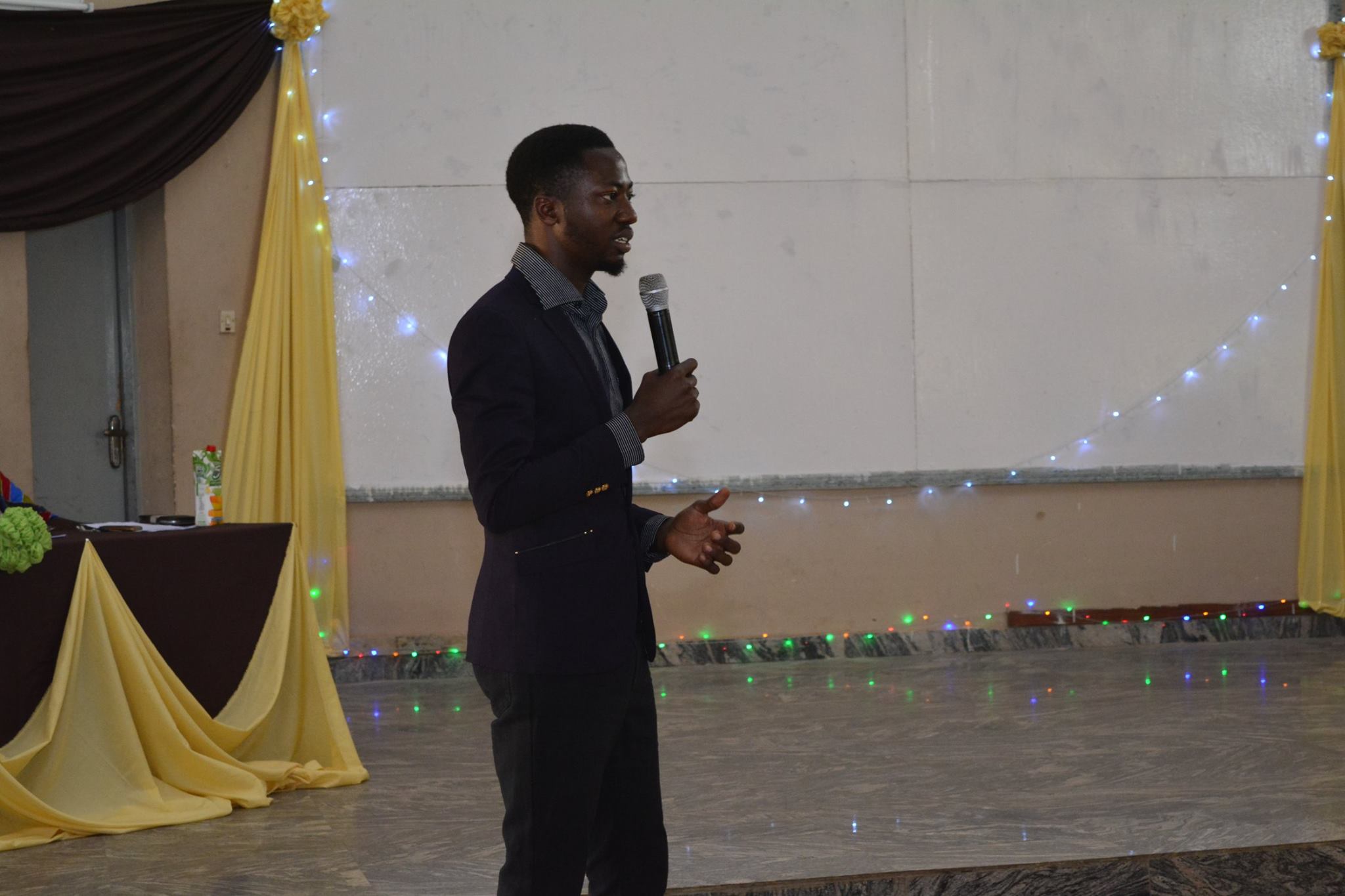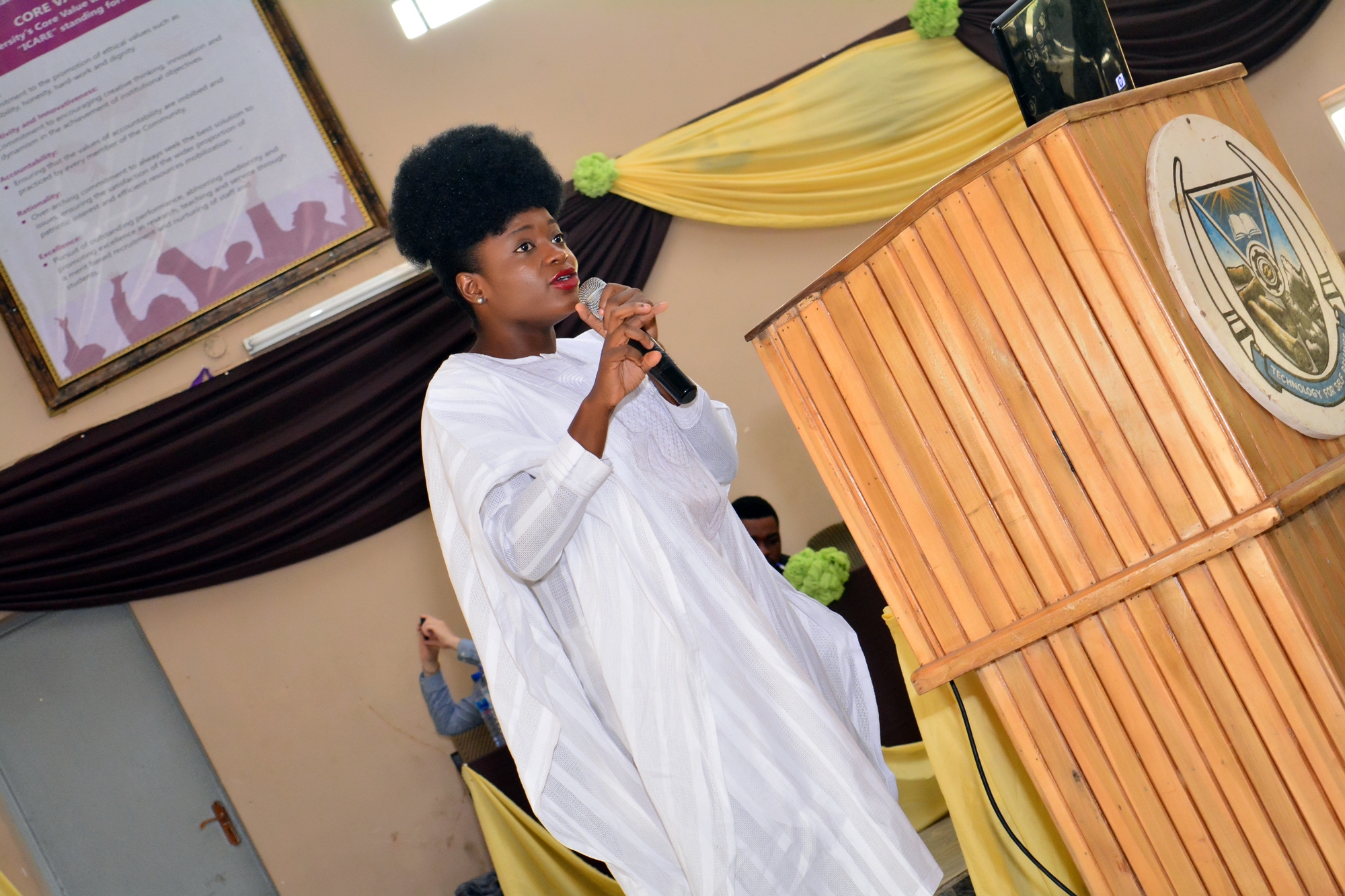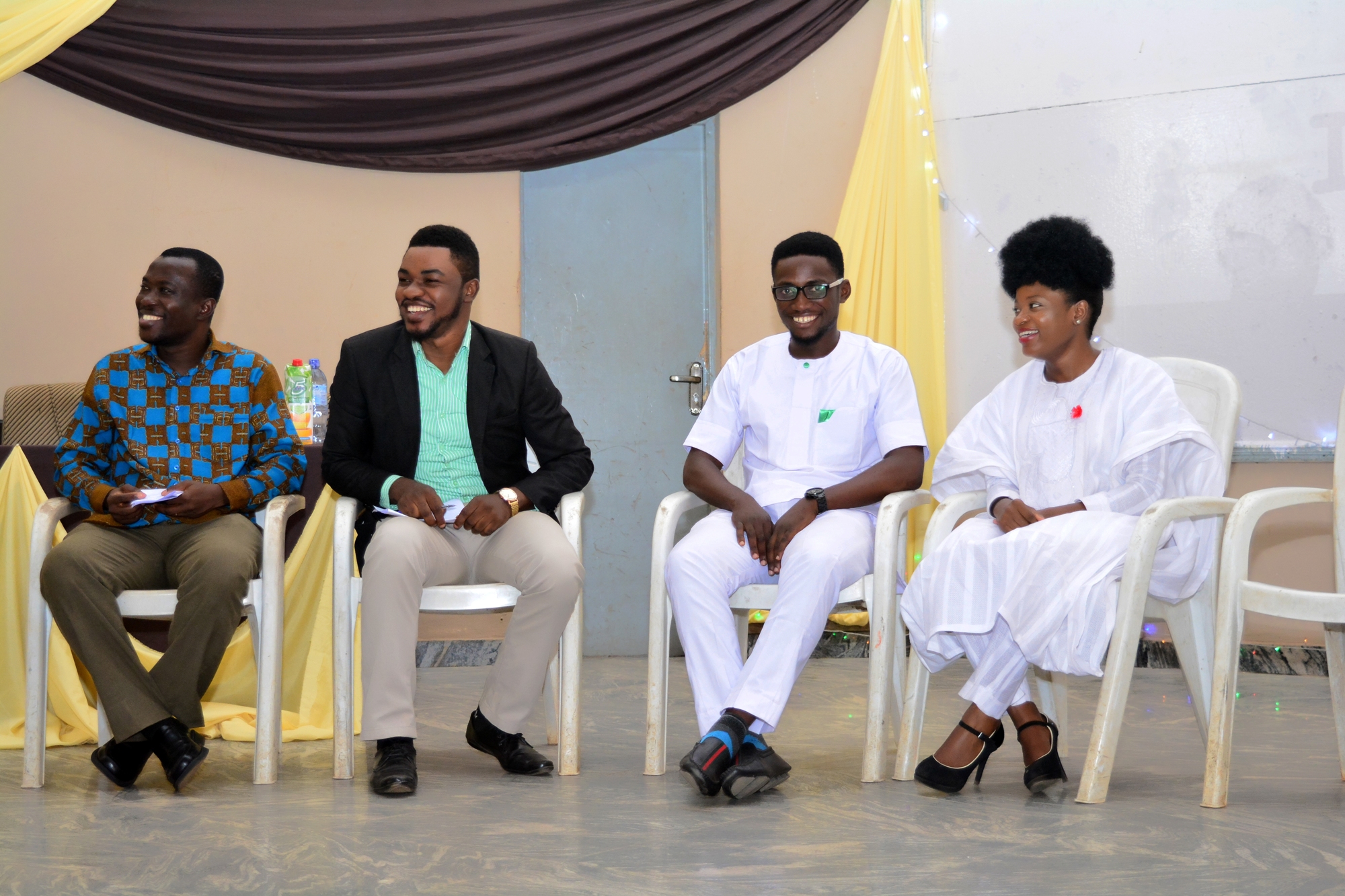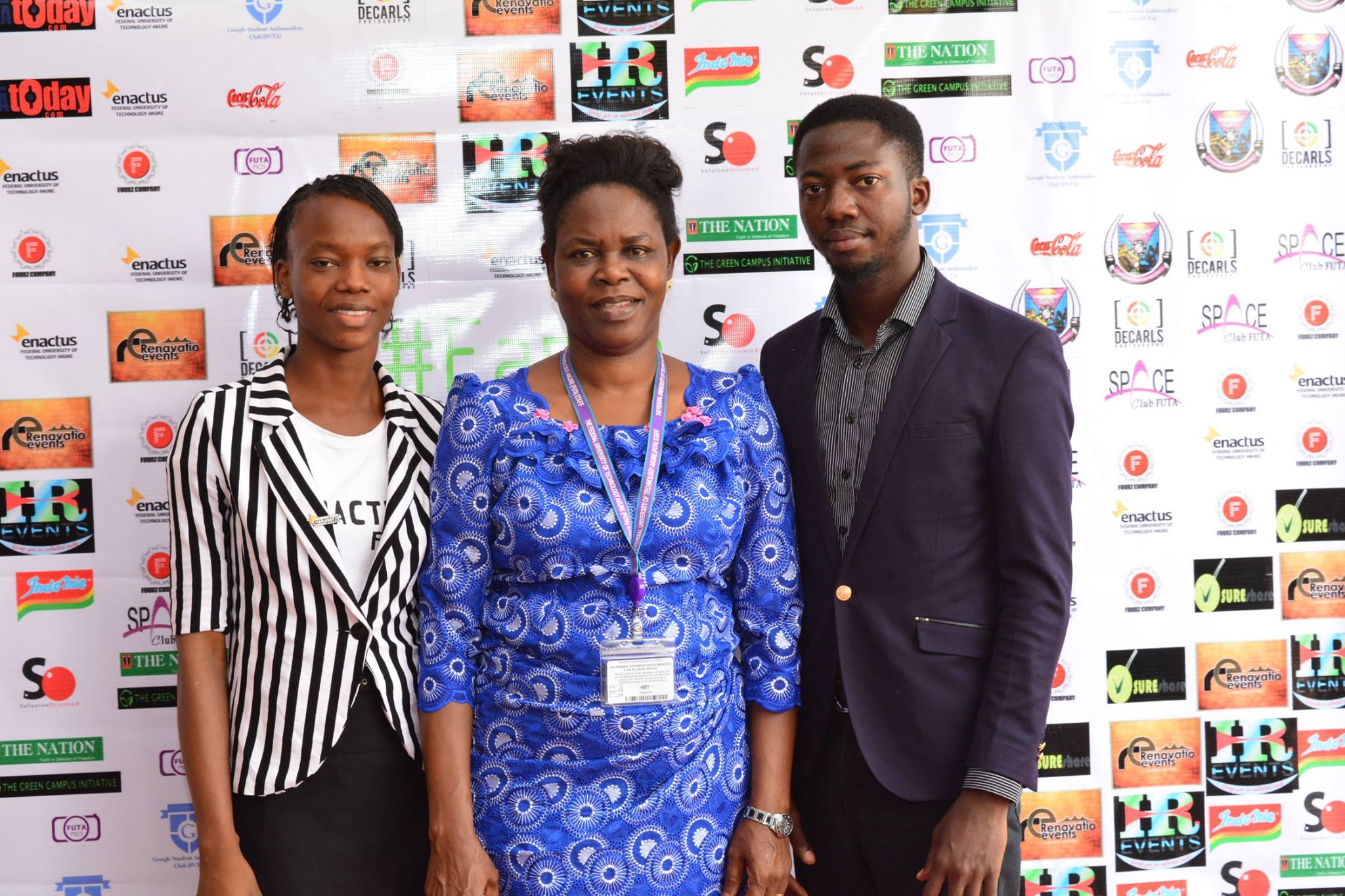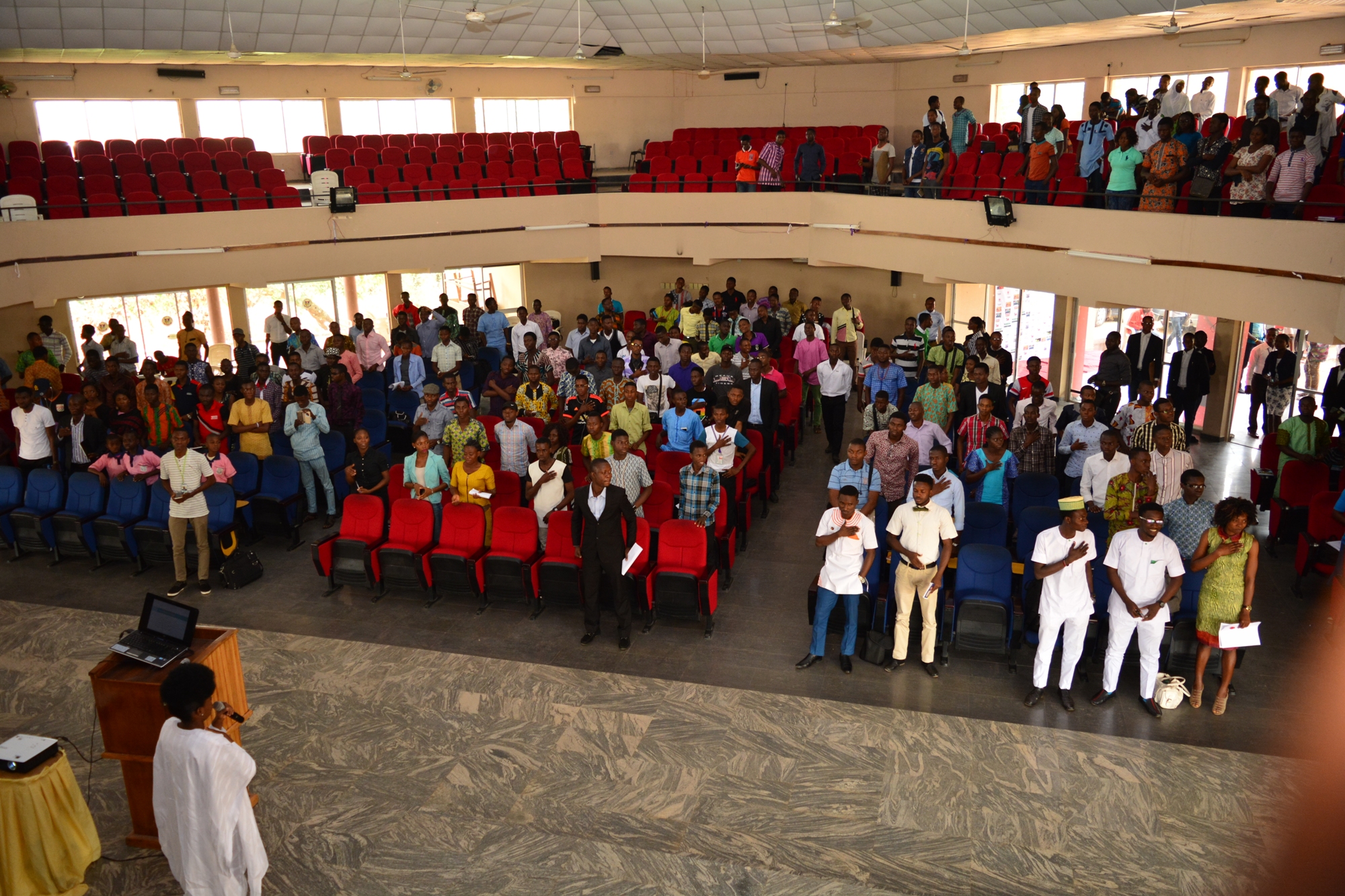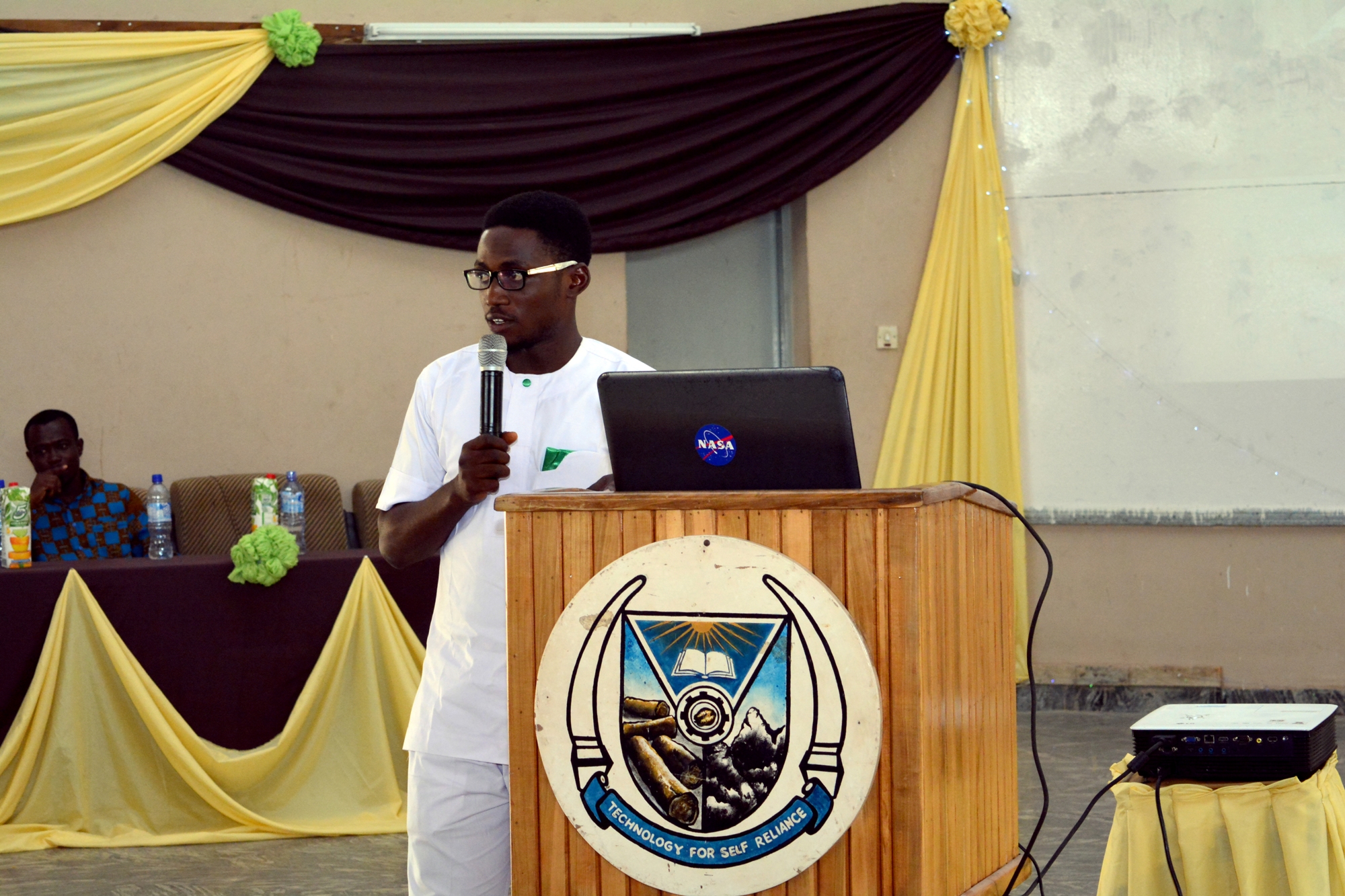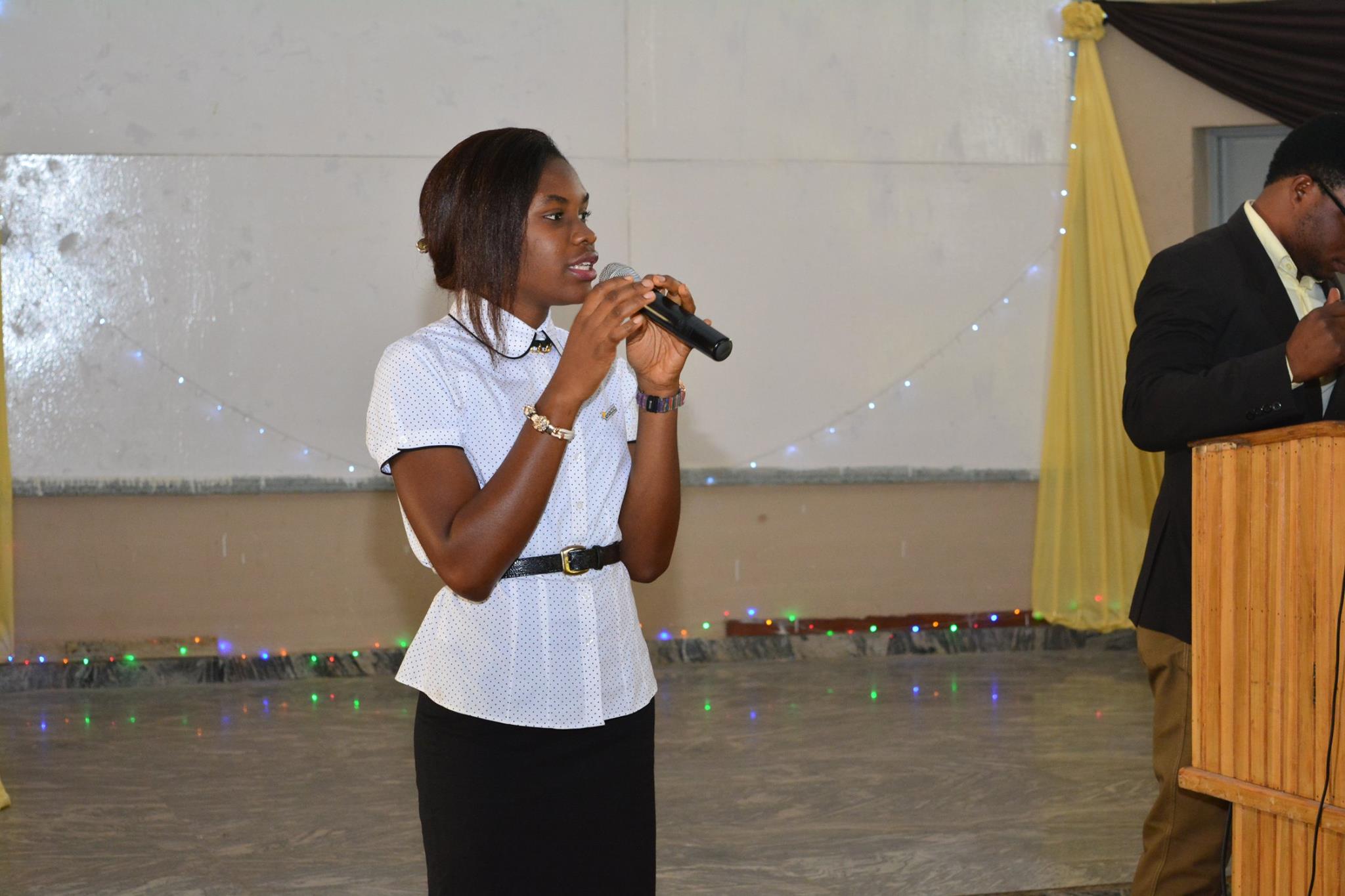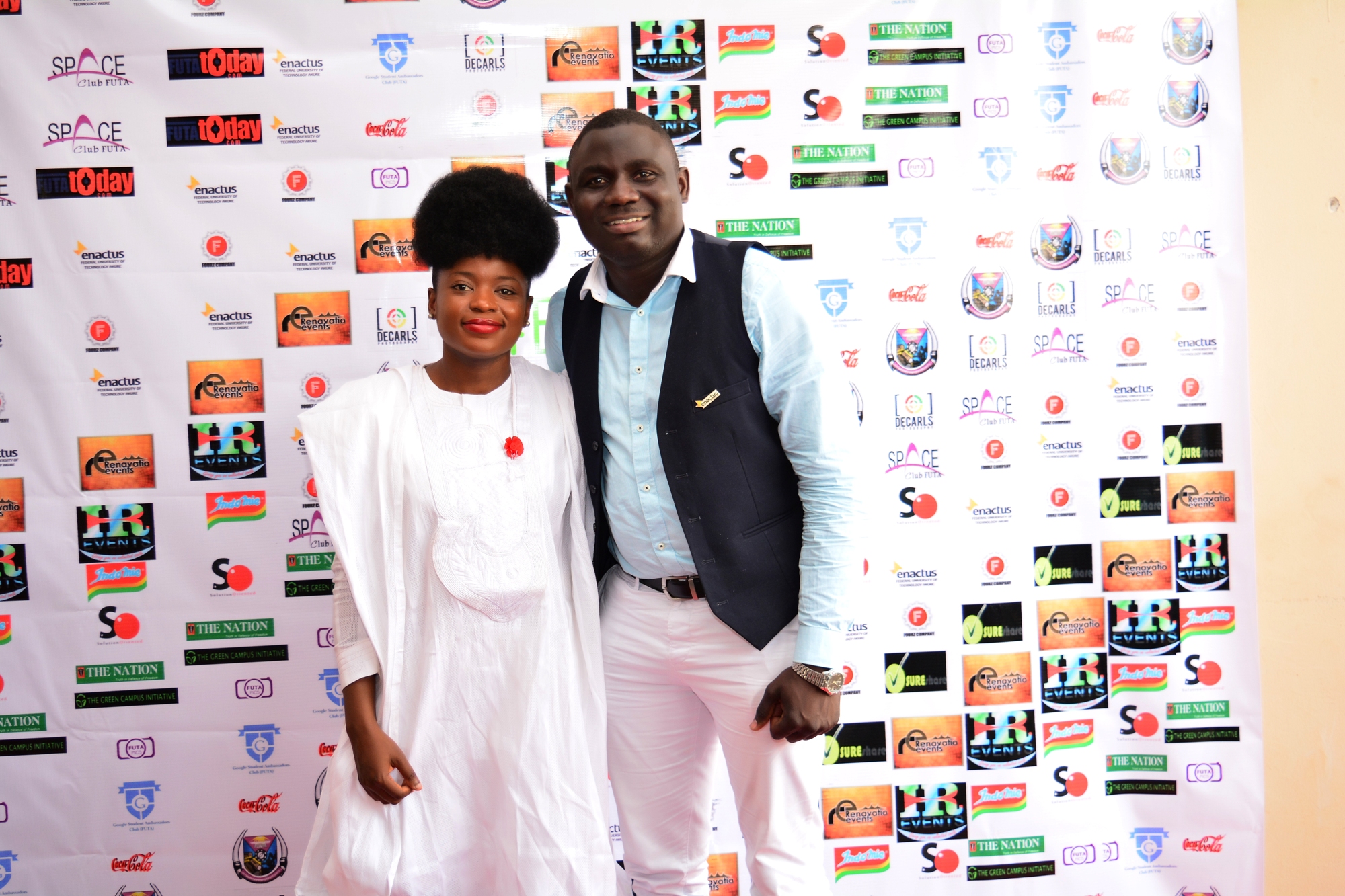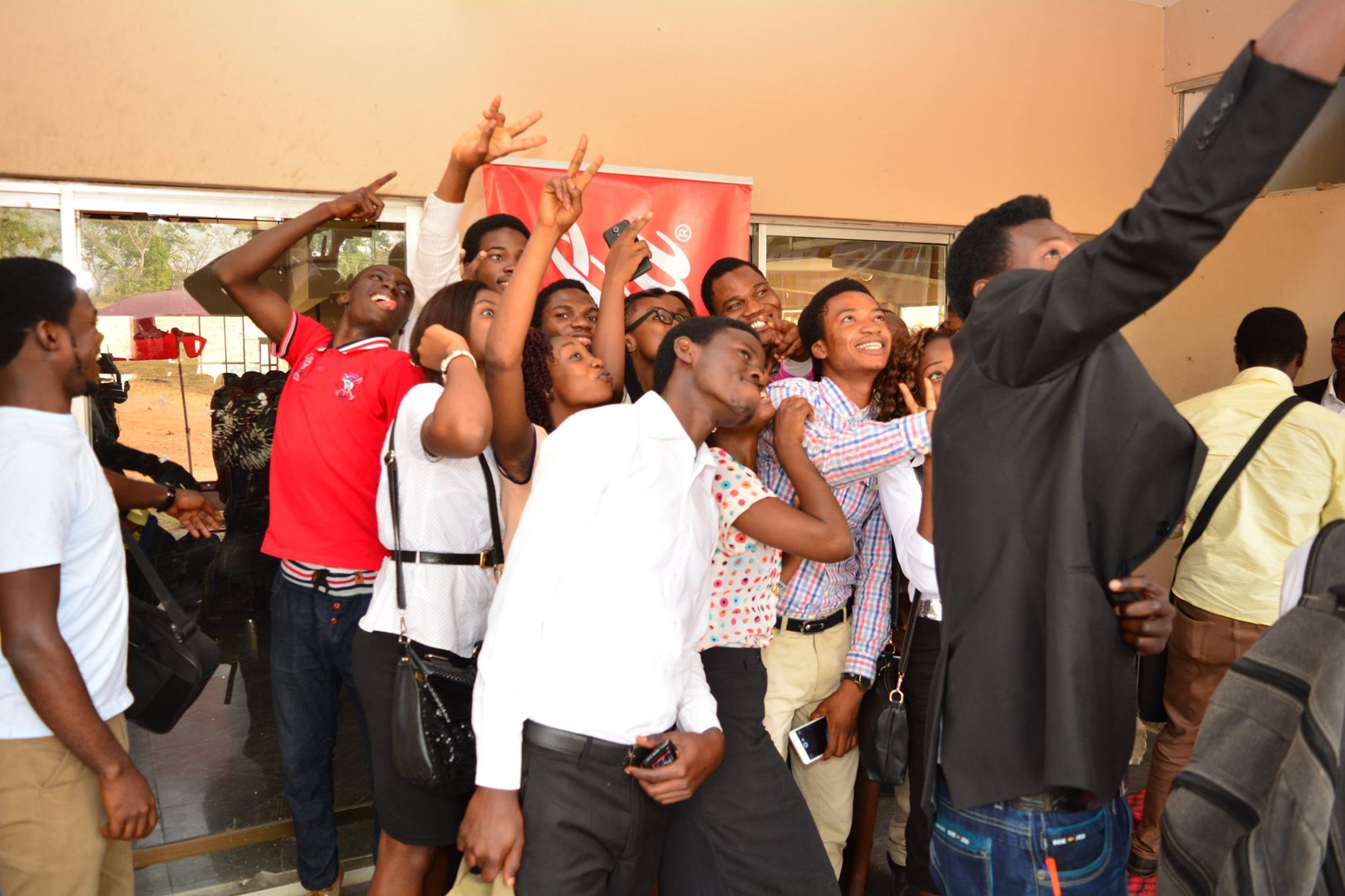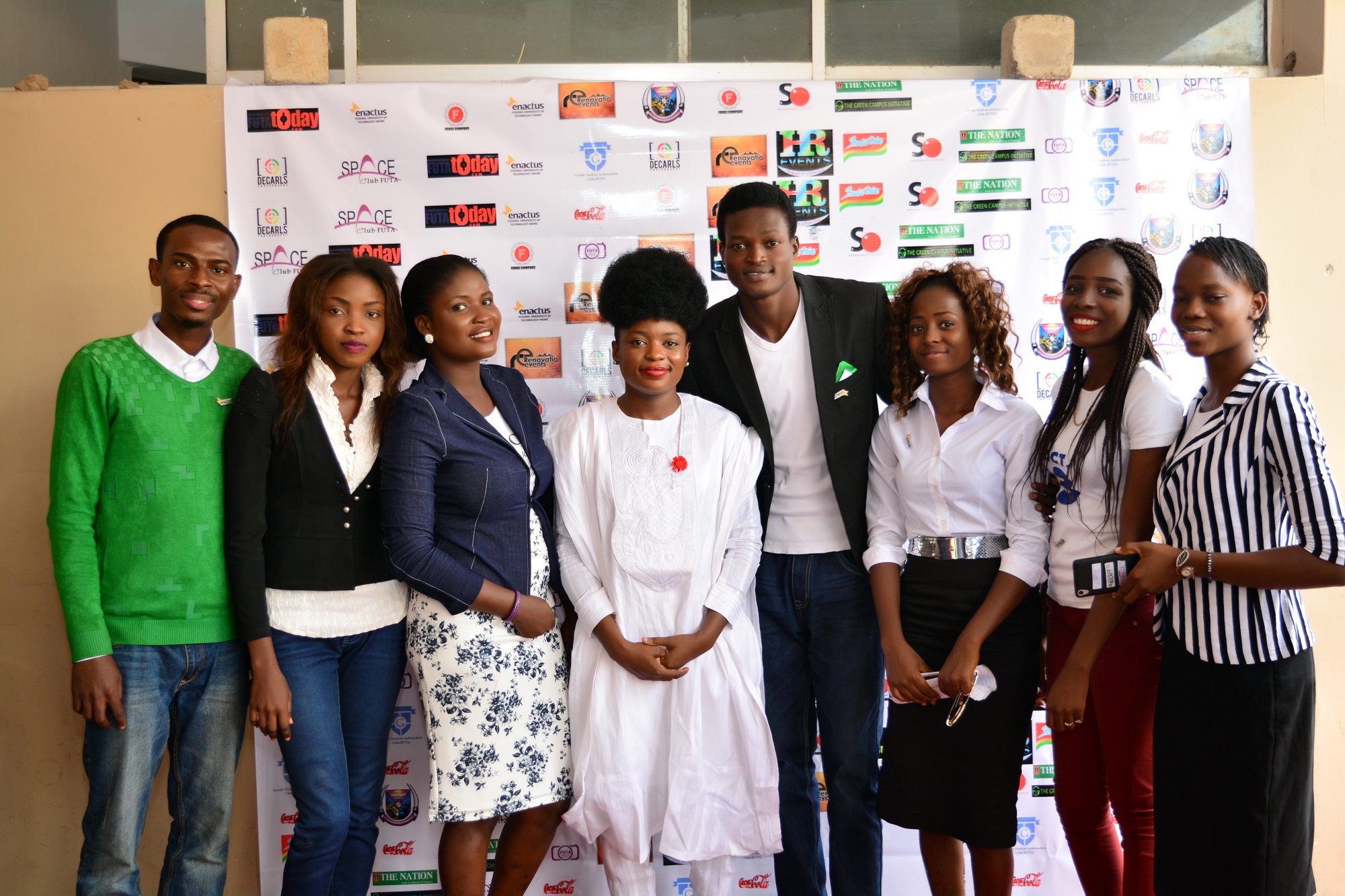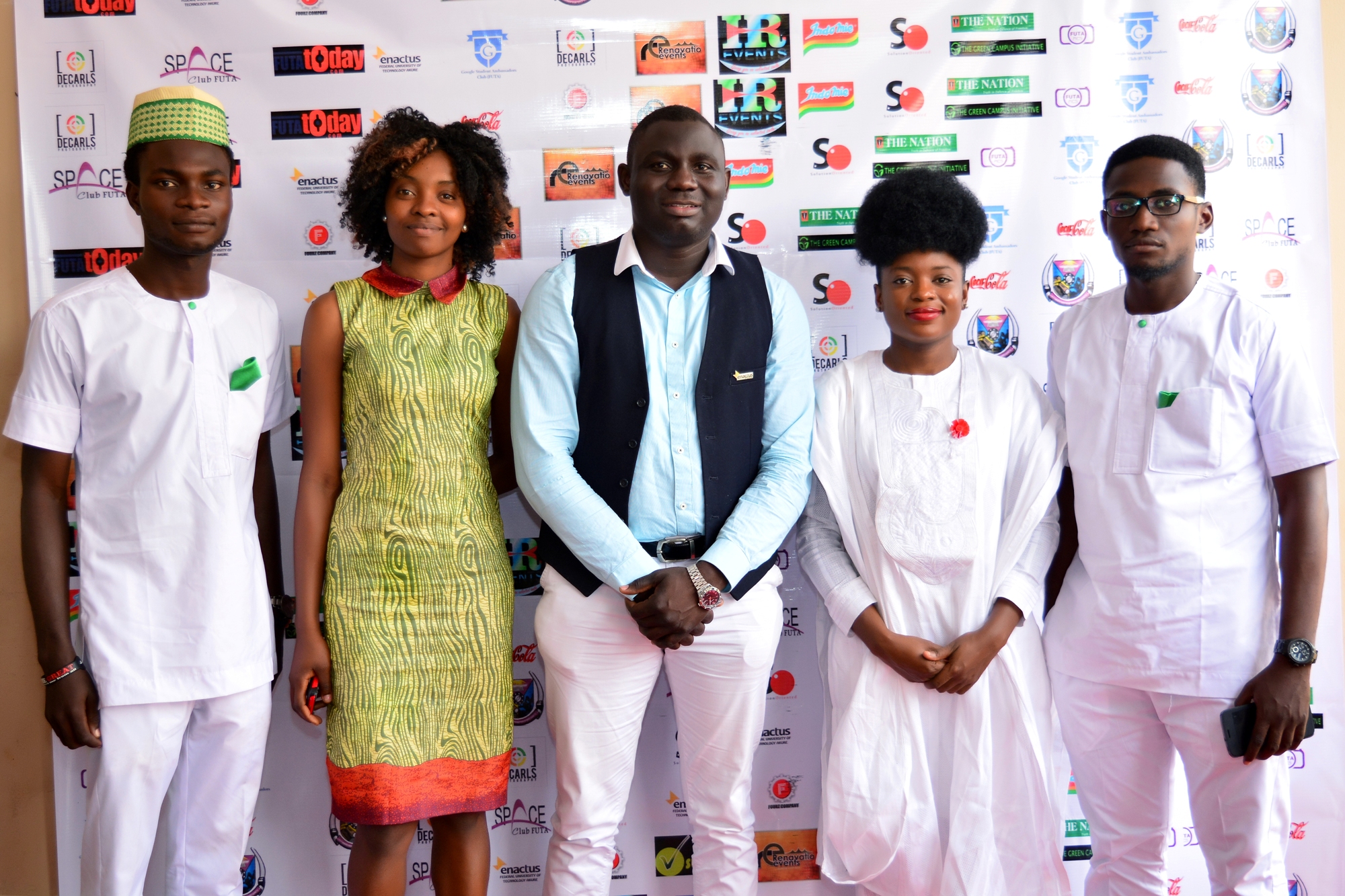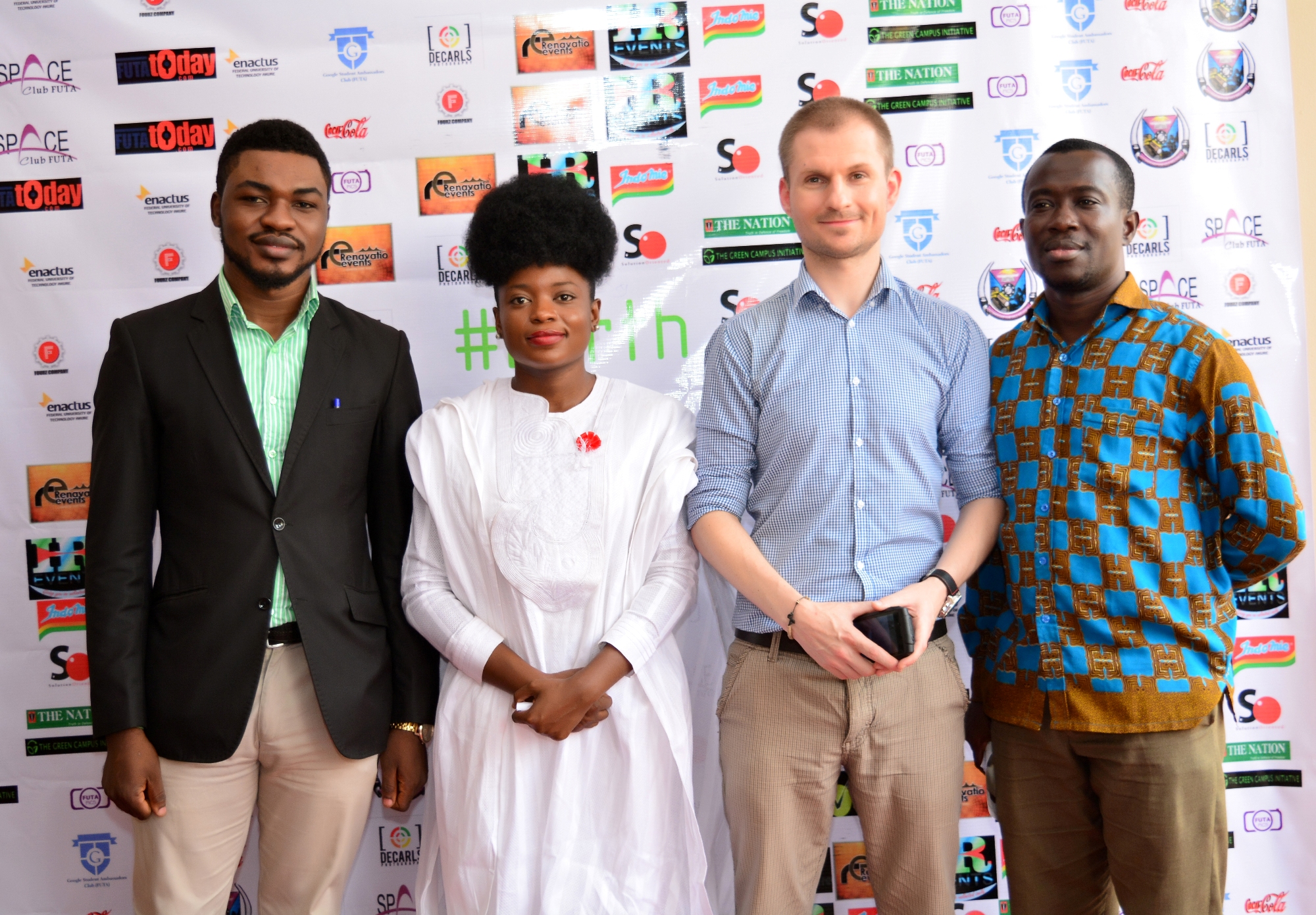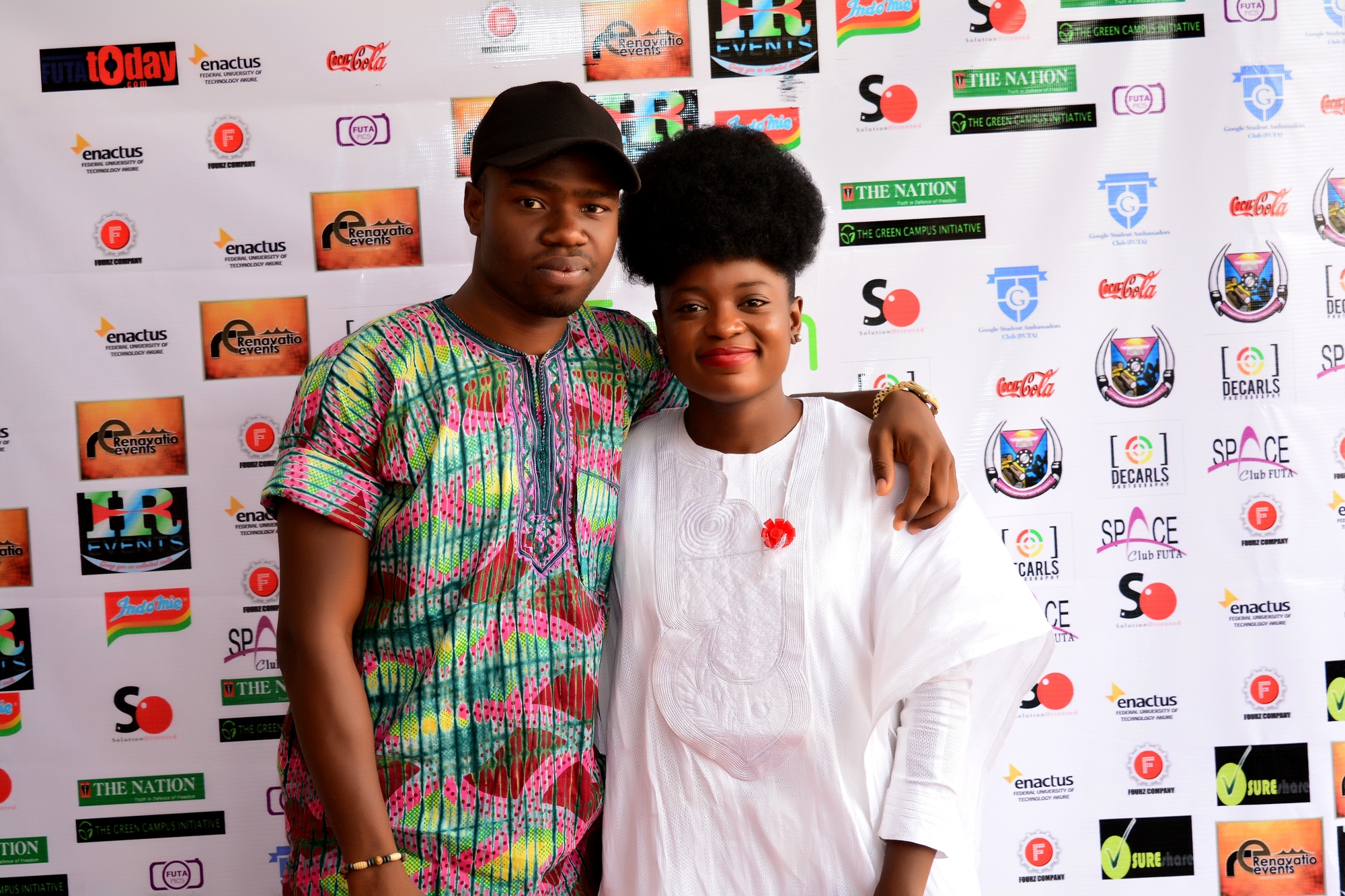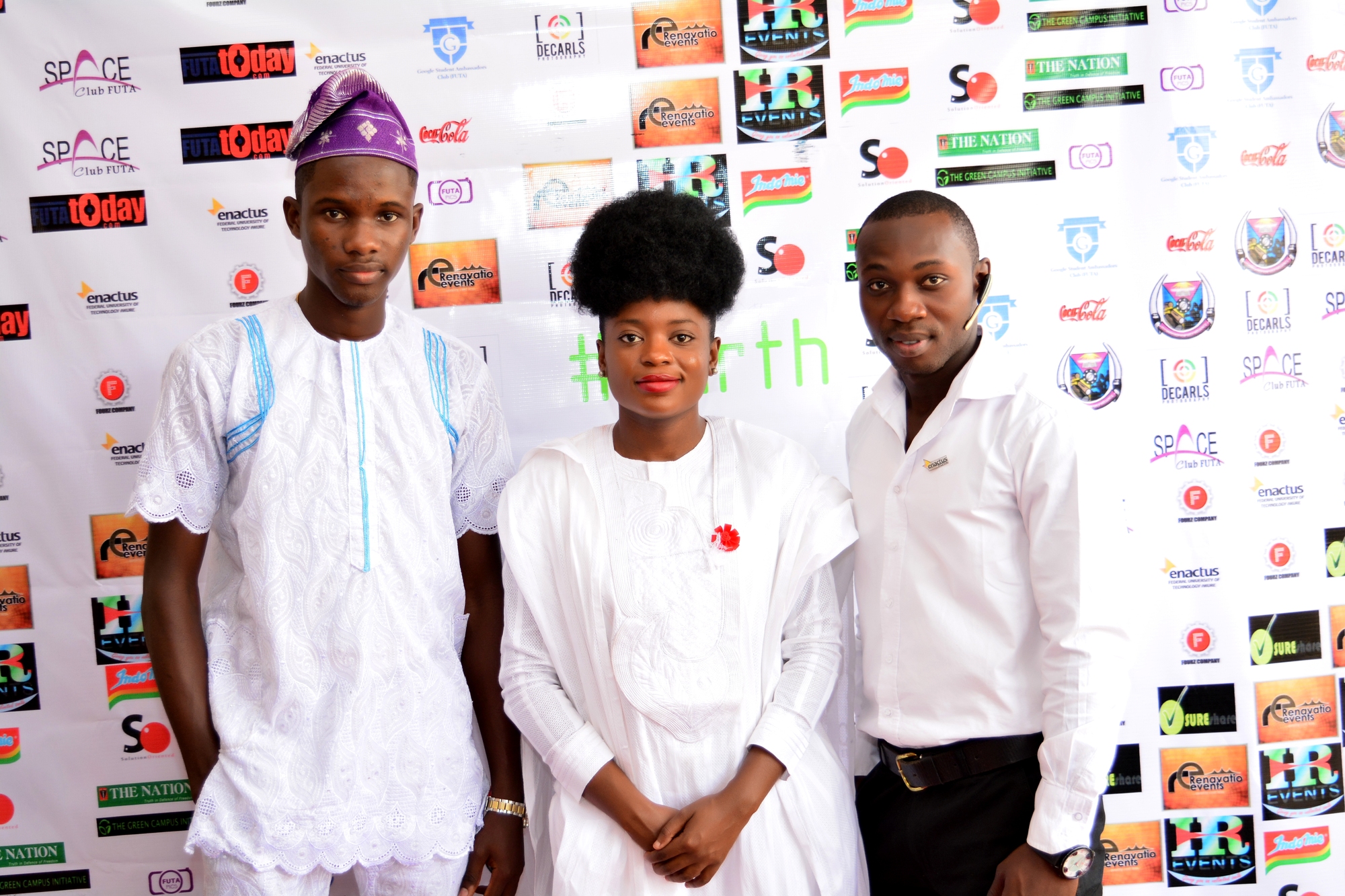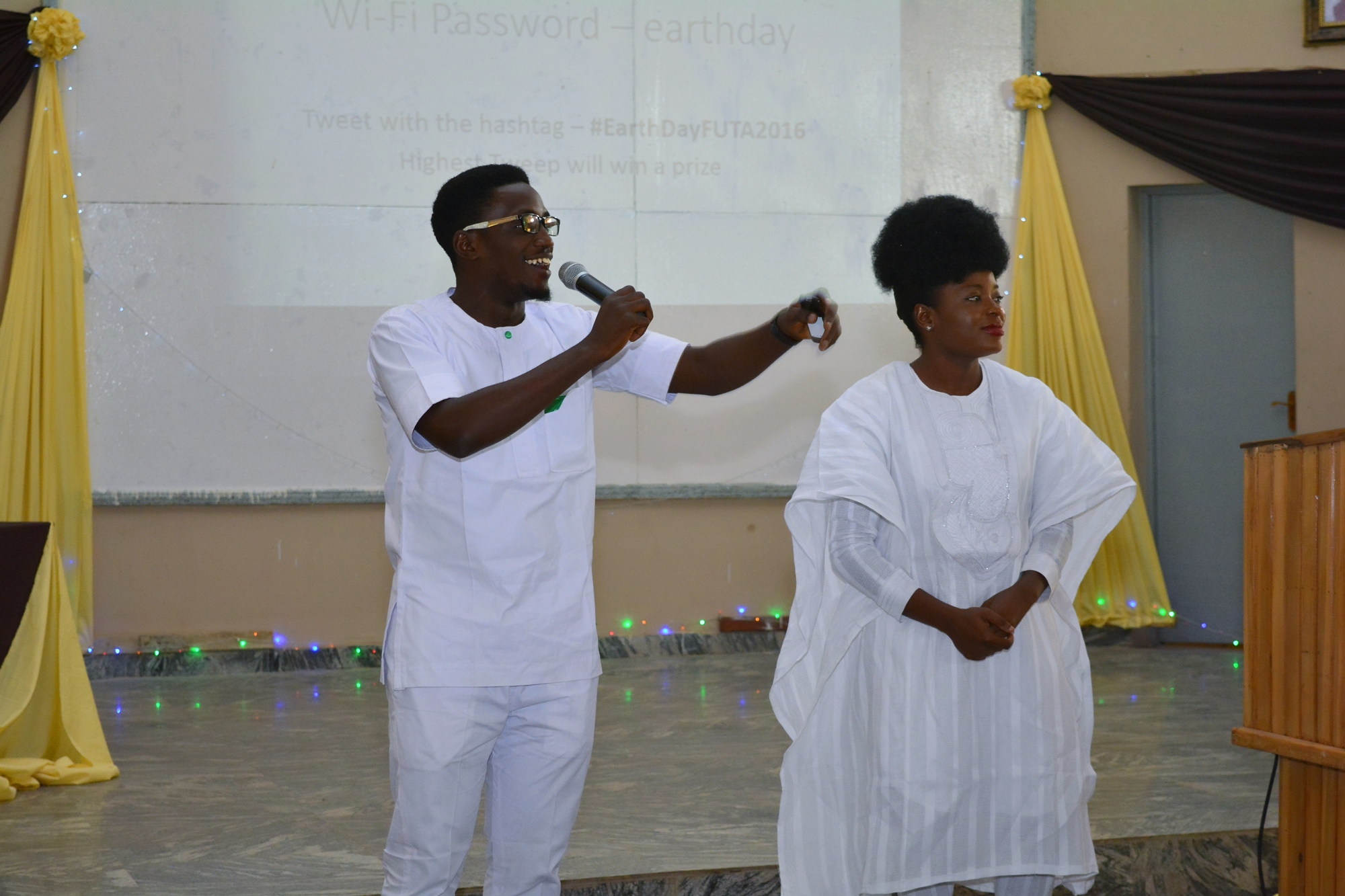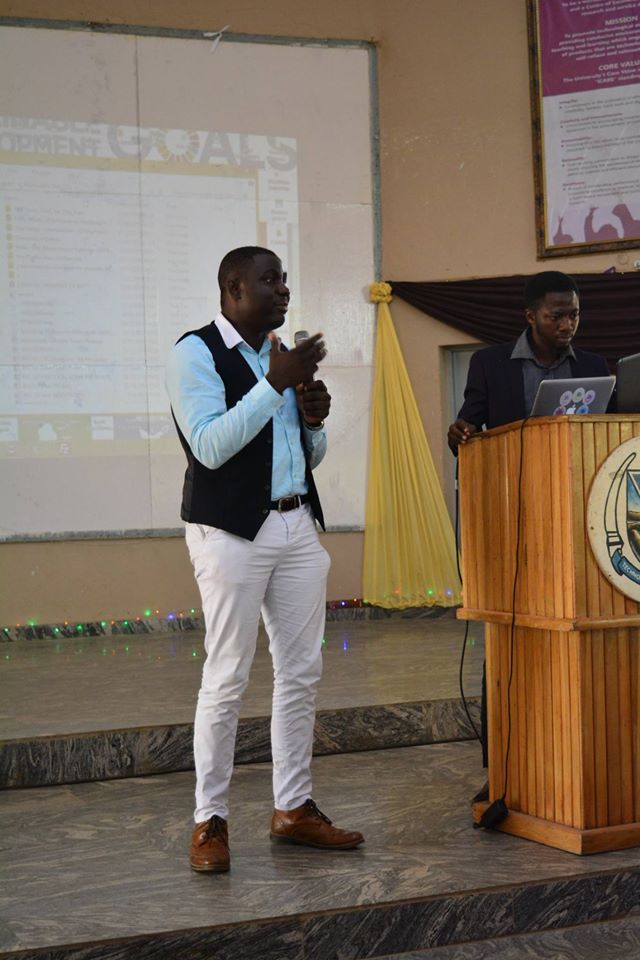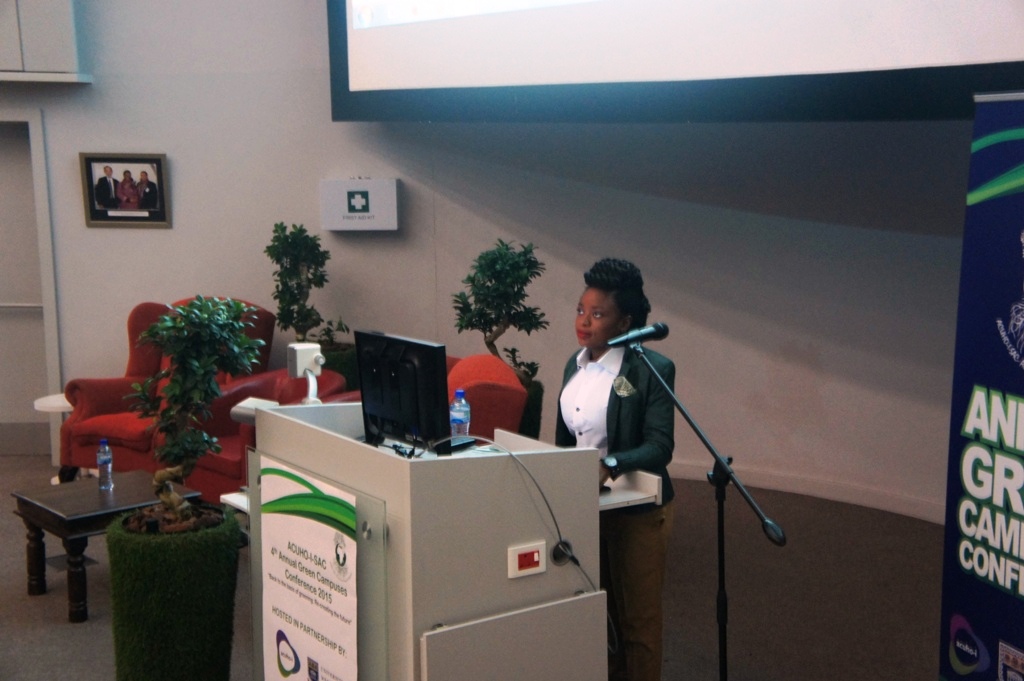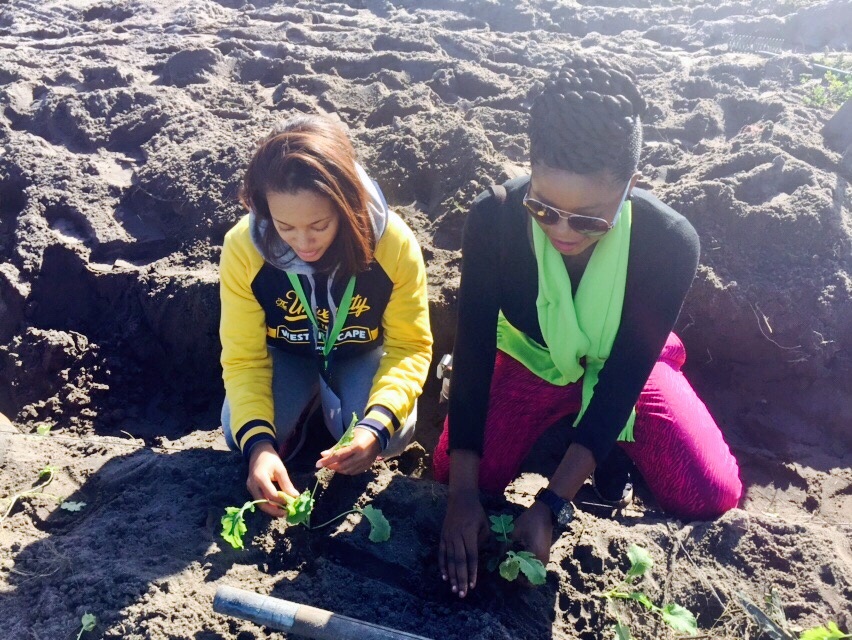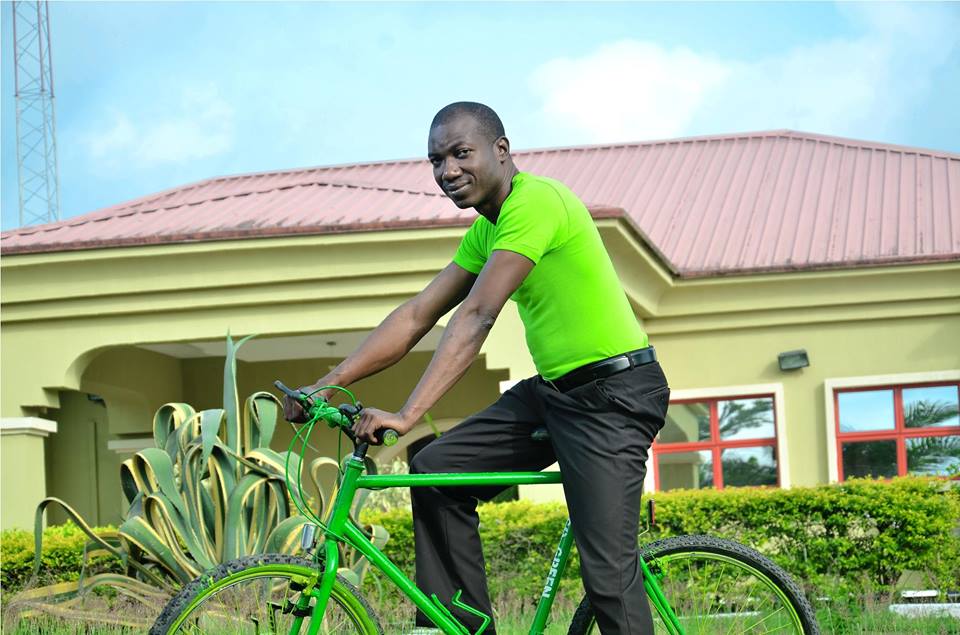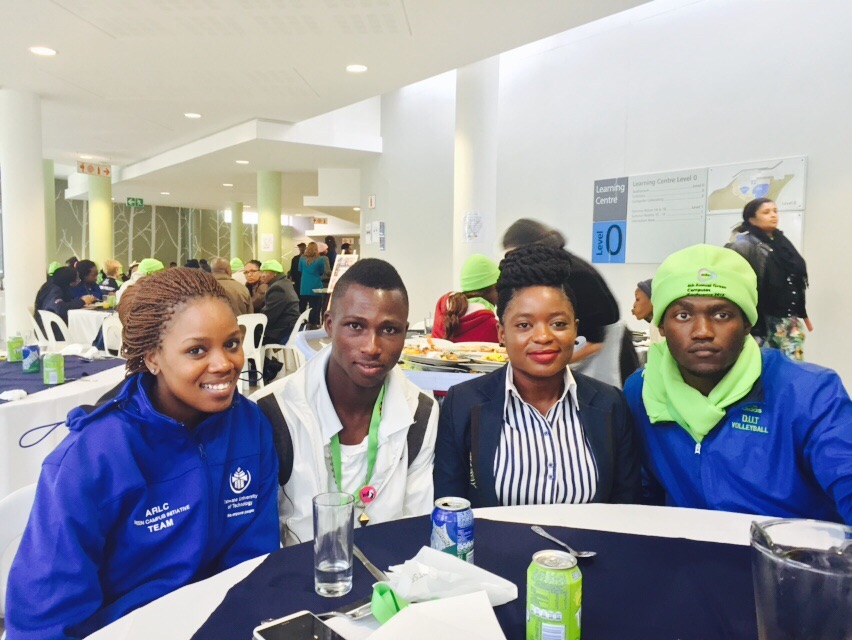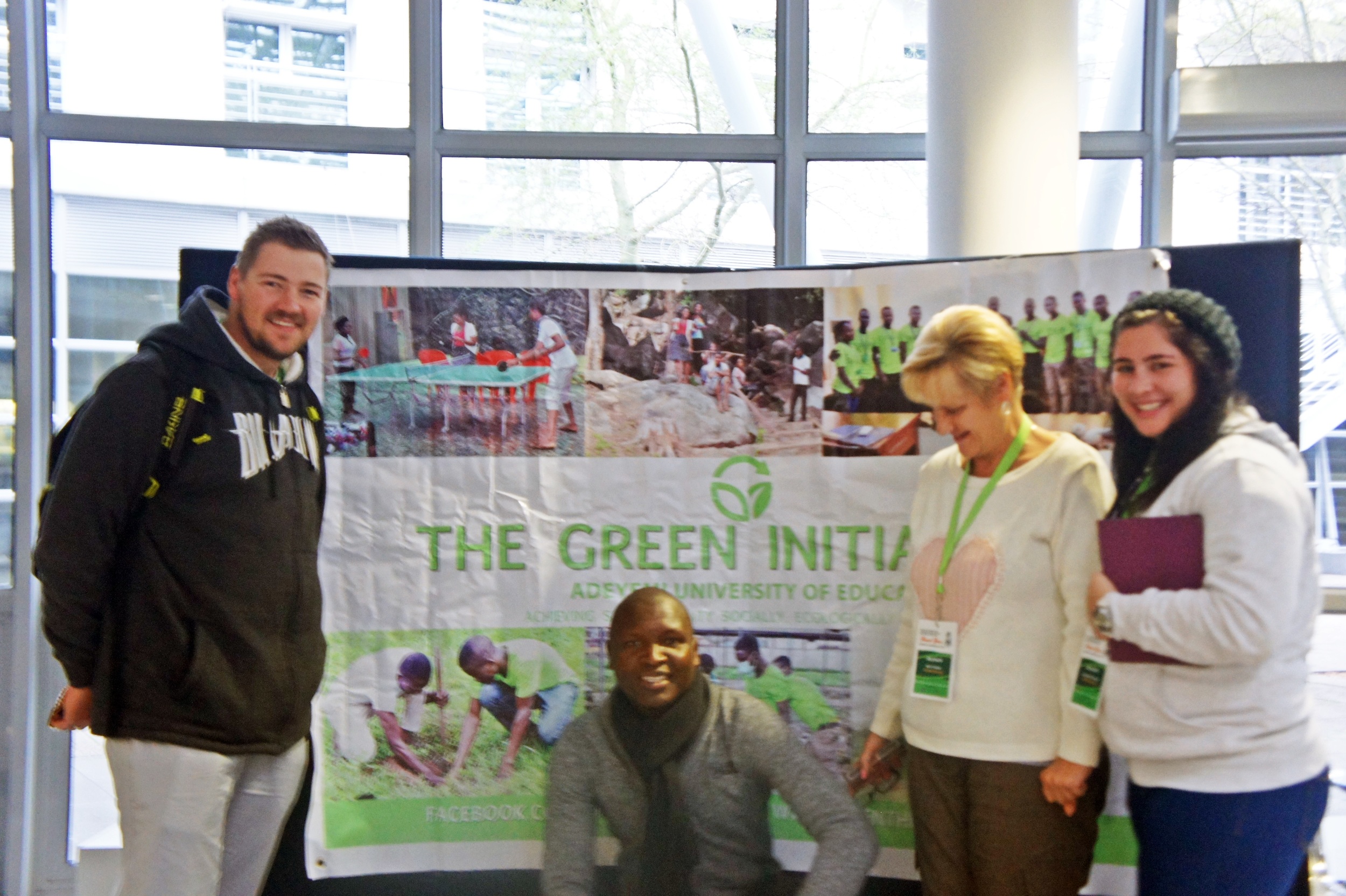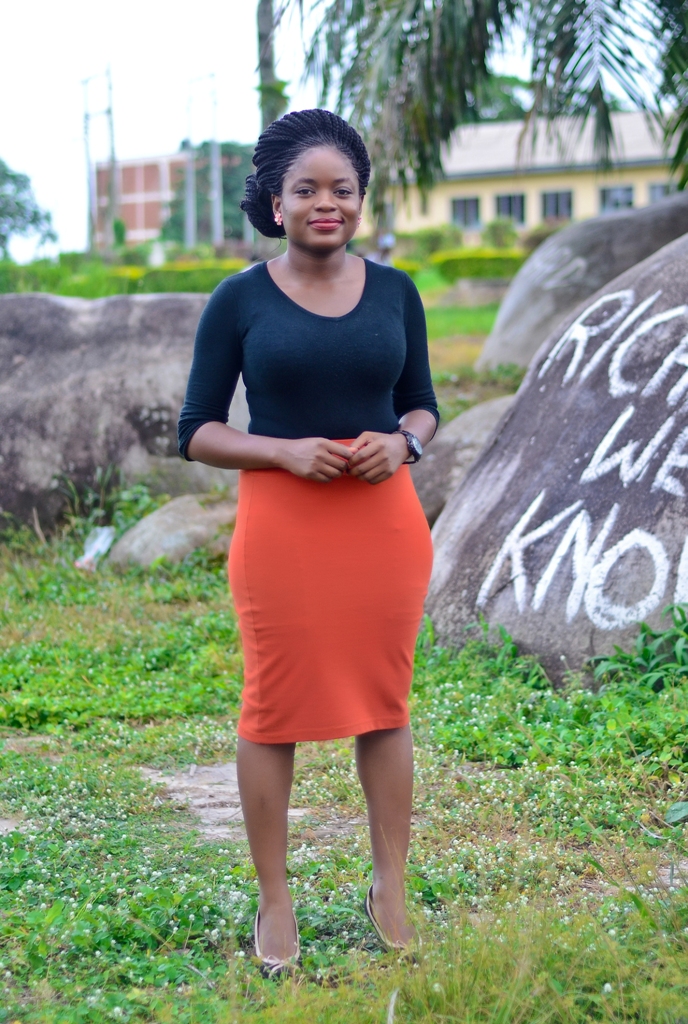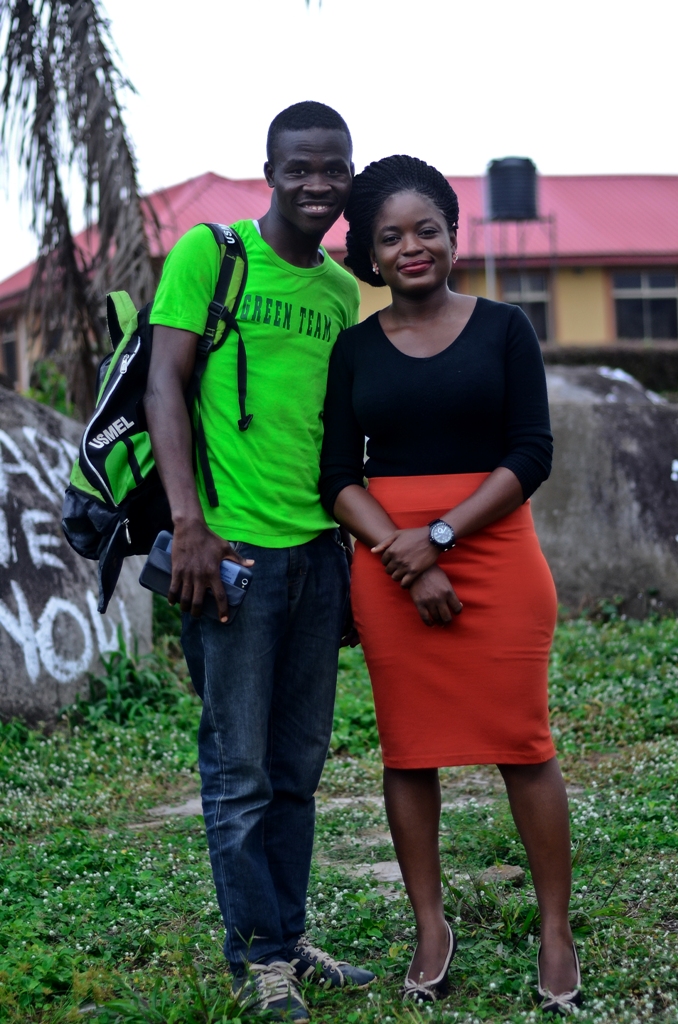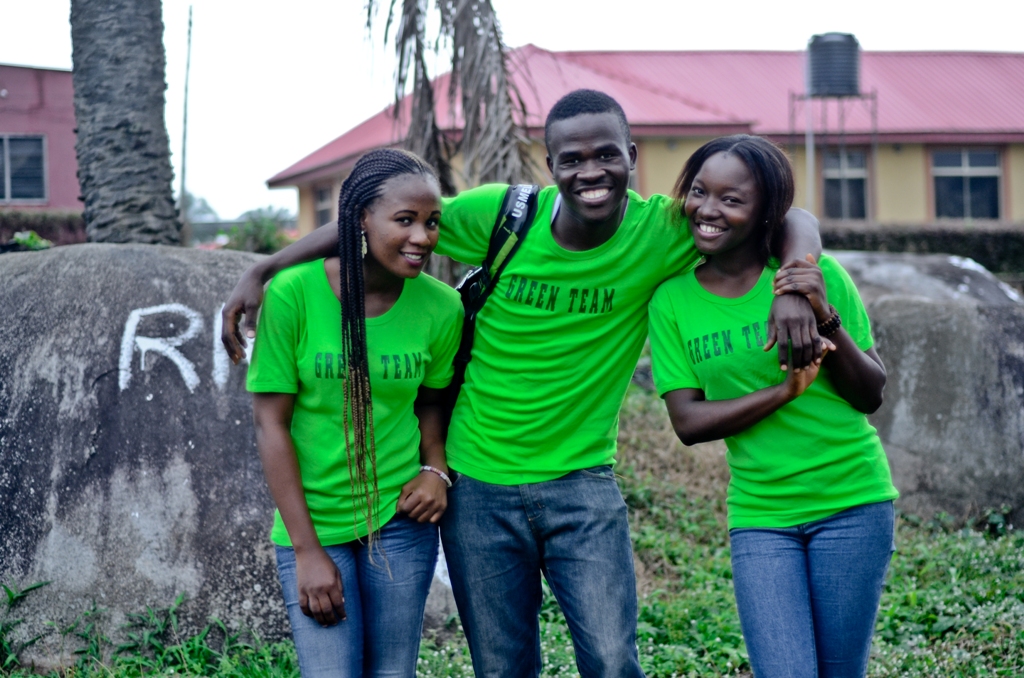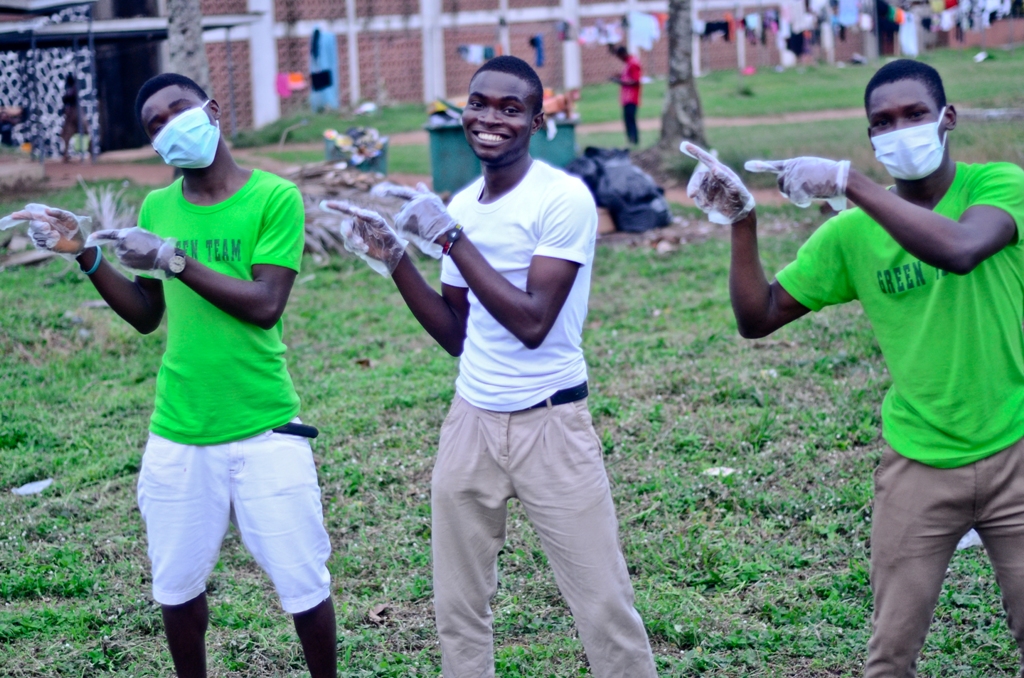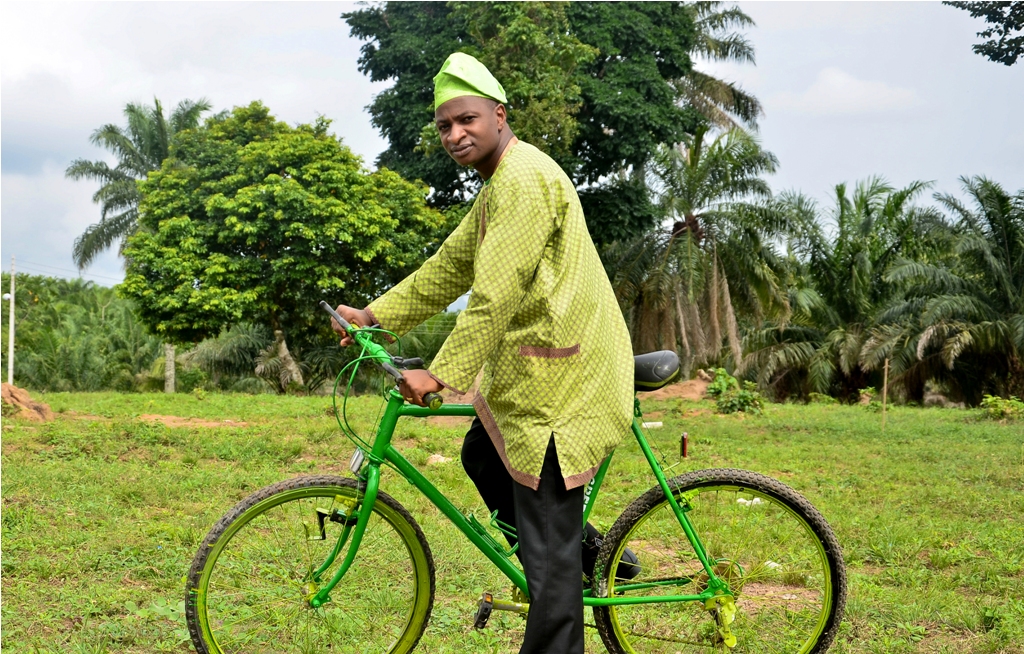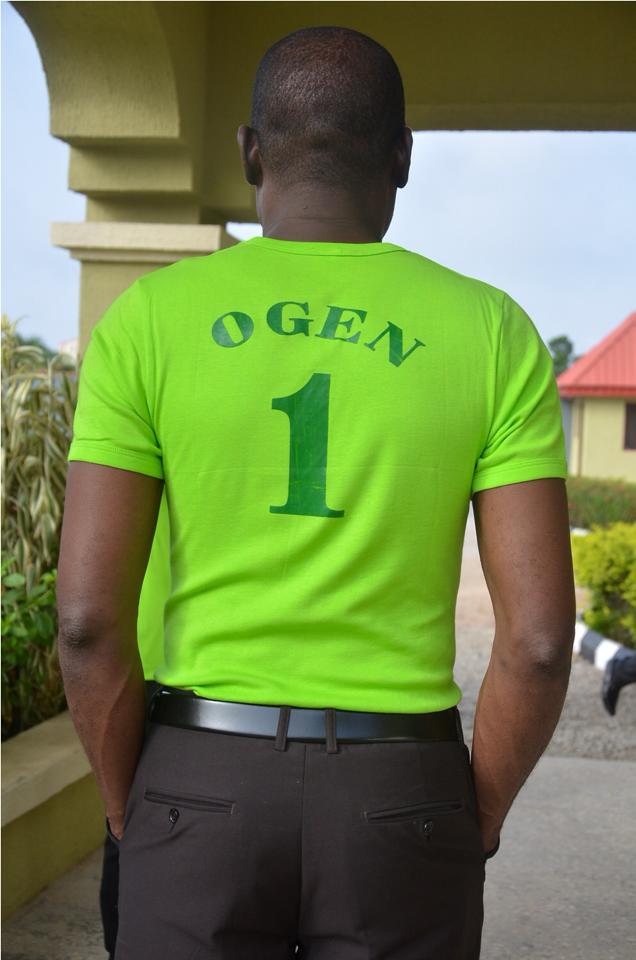Q & A
Obafemi Olukoya: Environmental activism has had a very great success worldwide (I think we both agree on this). It has influenced government policies and is even happening in the process. On the other hand if we look at our country Nigeria, environmental activist have not received the type of attention that their colleagues in international communities are receiving. What the situation in Nigeria is all sort of participating, harassment, confiscation of properties and all that. So what, where do you think we got it from and how do you think we can move forward.
Omoyele Sowore: You know when Ken Saro-Wiwa was speaking to environmental issues in the country, the military did not allow that to percolate, he was seen more as some trouble maker who wanted to stop Nigeria for making profit from so-called God giving crude deposits. That was how Ken Saro-Wiwa was presented to the public and also Ken Saro-Wiwa's situation was complicated by The Biafran War because he wasn't on the side of Biafrans when the Biafran war was happening. He had a lot of opposition. I remember this heartbreaking situation that the day he was killed, there was a rally in Port Harcourt and I know it was sponsored but to even find out that it could be anybody in Nigeria, a thousand people or more who celebrated his killing and it was heartbreaking for me. (I was in NYSC then). So he was never forgiven for allegedly his role in opposing the creation of the Biafran nation, and because it was on the side of Nigerian troops or forces and he became one of the youngest Commissioners, Commissioner of education in Rivers State at the age of 28. So he's a prolific writer, a publisher and he created a show known as Basi and company that so far in the history of the Nigeria television Authority had the highest number of viewers, he was a business man too, he was doing business, he was into produce business. He had a big grocery store in Port Harcourt. All his kids were living abroad and going to school abroad. But what I'm trying to say to you here, If you haven't lost me and I haven't lost you is that ten was only the beginning, but he was in recent time the most prolific Fighter for environmental rights, and he opened the eyes of both the enlightened and unenlightened people in Niger Delta Region to the fact that resources belong to them and came out with facts and figures and internationalize the campaign for what the profit these companies were making and what members of the environment was asking from the onset Is that they should pay back to Nigeria's Niger Delta region where they had lost to oil exploration. And he was able to prove, it he had videos and shell participated as it was later revoked in aiding Nigerian government to kill Ken Saro-Wiwa and the Ogoni's who we're involved in the struggle for environmental salvation in Niger Delta region, lt is something that I think someday we will have a chance to review, bring to vocal those who were responsible for the atrocious killing of Ken Saro-Wiwa. Yes.
Obafemi Olukoya: Yes, thank you very much for offering this very important insight. Given the circumstances and peculiarity of Ken Saro-Wiwa, for example there we're divers allegations under the names which are castigated (for example his role in civil war and all of that).
Let's assume this was the peculiar circumstances of Ken Saro-Wiwa, but from 1995-2020, in Nigeria nothing has changed. So even environmental activist without such role, peculiarity or such circumstances still get similarly treated maybe not to the point of being owned but still get this kind of harassment and do not get this kind of attention and accolades their international colleagues do get. Where did we get it wrong? How do we change this status scope? So to encourage prosperity, have role because at the moment I don't think any young Nigerian want to be an environmental activist, given what is happening. You get the point?
Omoyele Sowore: There is no young Nigerian that would want to be an activism in this period because Environmental rights, Local Education activist, anything student activism. Nobody wants to be because this is very dangerous Venture. The system is very vicious when it comes to the way they react to activists, so we don't have to blame anybody when they say that. What has happened is that when you want to fight an environmental rights fight, if you have a person who is siding with your enemies then it’s dangerous. In other countries, even in the US, we have the EPA, they are very Independence, they issue policies, fine companies, sue companies who violates environmental rights. In Nigeria, the Environmental Protection Agencies are working for the violators of the environment. So the Nigerian Army, Police could easily be brought or hired to go and to enter an helicopter hired by Shell to go and shoot the villagers. Infact, Shell has its own police at a point and they call them Shell Police and they don't even hide it, they pay them special salaries, they are the ones who buy weapons for them and arm them, so when you have that, is like double tragedy for you, because now you don't have any independent agency of government that is evenly willing to corrobate and fight on the side of people who are fighting for the dignity of the environment. They are fighting against you and that's what they did to Ken Saro-Wiwa and that's what they always did. So that's the reason why you saw that in Niger Delta Region people lost trust in peaceful agitation and started armed interacting against the government, but unfortunately the armed militants who fought for the environment they themselves ended up becoming very oppressive, they are out of the system. They're billionaires now and they of course at some point are engaging in environmental degradation through legal pipeline activities in their own illegal refineries because they breaking up this pipelines, they are doing more damage to the environment than you can ever imagine. So but that is their only way of getting a part of what you think they are entitled to. So, every other agency that has been created since 1995 or even before then were not created to deal with the environment but were created to make more money from the Niger Delta Region. And that means that you lose the environment. You see how because of acid rain in Niger Delta region, the Atlantic Ocean is destroying Villages because the more of these exploration you carry out, the more you tamper with the environment and then lack of power as someone was commenting, which I was gonna say you have people breathing in sooths, you sleep at night and the whole of your nostril is blocked over night and the level of cancerous diseases in Niger Delta region is way higher and resolving in any other sickness.
Obafemi Olukoya: Okay, thank you very much again for your insight to that specific question. So we would be moving now to question two which is that Ken Saro-Wiwa (which is our subject of discussion of course) stood in opposition to the massive pollution emitted at the Royal-dutch Oil Company in Ogoni land (which you have explained to us very comprehensively). At this specific moment can you say that government have continued his legacy? But let me stop right here, does the government infact accept that Ken Saro-Wiwa has a legacy? That is question number 1
Omoyele Sowore: No, they do not, that's the interesting part.
Obafemi Olukoya: So if they do accept that he has a legacy, what have they done to ensure that his legacy is occasionalised through the regulation of oil companies to reduce the continued pollution and all of that? So we are told now that his legacy is not being accepted, what are the obstacles, reasons that you can give us.
Omoyele Sowore: To accept the legacy of Ken Saro-Wiwa, first the country owes history a duty to investigate who and who were responsible for killing Ken Saro-Wiwa and what were the conspiracies behind the Oil Company site or the multinationals. You know, there are paper trails, who were the persons who carried out the handling? To let you know that they're not interested, the judge, Ibrahim Auta who sentenced him to death unjustly eventually became the Chief Judge of the federal high court of Nigeria, the prosecutor who helped prosecute Ken Saro-Wiwa eventually became the President of the Nigeria Bar Association. These are recent history, one of the judge Advocates who was on the panel that killed him is currently the director general of customs in Nigeria, Hameed Ibrahim Ali. So all of them had social promotions, they are still in the system. So if this happens in any sane country, those guys are supposed to be in jail or answering to some kind of sanction for what they did or be made to at least explain how they all ended up in the scheme or someone driving all of that process. But what did we do in Nigeria? Everybody who participated in the crime, they're doing very well except Ken Saro-Wiwa and his family. And you probably heard that his body has never been really found because they said they poured acid on him (I can't confirm that) after he was gone. Three of his kids have died since this thing started, you know his son who came to work with the Nigerian government at that time died I think two years ago. One of his son died of COVID this year. His 13 year old boy died when he started the activism and so Ken Saro-Wiwa lost pretty much everything but the Nigeria State didn't lose anything, the people who killed him didn't lose anything, they are doing well in the system. So that's what is wrong. His legacy is also declinable for Ogoni land even though the United Nation has come and said the Ogoni land needs total clean up. Till today, they have not. In fact, they are saying that three days ago that they re-awarded the contract again for the cleanup of Ogoni Land. You know, the Army, the police, the press system is still going after the little activism that is left in Ogoni Land. They are still there actively hunting down activists in the area. So, what Legacy are we talking about? The only legacy he left is in the minds of people around the world who appreciate what he did not the Nigerian government that I know of. There's still no Ken Saro-Wiwa University or Ken Saro-Wiwa highway or Ken Saro-Wiwa streets in Abuja, all the street in Abuja are named after the criminals who looted Nigeria, Babaginda, Obasanjo, Buhari, Dongoyaro, all these criminals they are the ones who have barracks, theaters and all kinds of public buildings named after them as we speak. So Nigeria must reached that point as well that the Black Lives Matter has ignited all over the world, the slave masters and their status are being toppled. The status of the oppressors and the destroyers and the robbers who put Nigeria in the condition it is today, but nothing like that is happening yet. So it feels like we have to start the fight all over again.
Obafemi Olukoya: I think I absolutely agree with your point especially if everybody that was involved got all sort of promotion, are still in power and they're still perpetuating all sort of evils through their diverse rounds, such is a very sad situation. As a matter of fact, the sort of situation Ken Saro-Wiwa actually stood against has actually multiplied today. I totally agree with you that there's no legacy in the situation right here. Before we proceed to the next question on my list, I will like to take one question from the Green Institute and one of the question says that Environmental activism and the SDGs, what is the way forward?
Omoyele Sowore: For those of us who know about this SDGs, international Policies for Local Development or International Development, we just laugh when we hear that there is an office of the SDG in Nigeria. Any SDG office or any office that is created in Nigeria to further this International policies are just another way of wasting money. If you hear about SDG now, next time you'll hear about the UN they will be in New York annual jamboree and they would bring some 500 people with computers. So I don't really pay too much attention to when I hear this high ferreting buzzword, SDGs, Millennium Development, all kinds of buzz words that are used to confuse people here because we don't pay attention to them, we don't believe in them and we just create offices so that we tick all the boxes at the UN and oh, yeah, we have an SDG office, that's our SDG officer and they repeat the same thing everywhere they go to. But on the ground here, we have nothing to show that we're meeting any of the conditionality for the SDGs that the UN had to put in place. So because they come with performance indices and measures, so we just can't find that we are meeting any of those here. So but when it comes to the flamboyance of presence at the SDGs conferences, I'll tell you that Nigerians are doing a very good job for they wear the nicest suit, headgear and probably talk the longest, but on the ground here, there's nothing to show for it.
Obafemi Olukoya: Oh yeah, thank you very much for the logistic and very interesting summary of the situation. But coming from the point of view that I'm an optimist and I follow the SDGs programs in Nigeria, I can say that Nigeria is not exactly doing so bad. For example, Kaduna was able to submit the progress report on how it has been able to domesticated it so far and we have quite a lot of civil society in Nigeria that are trying their best to ensure this is making progress.
Omoyele Sowore: Let me just say this here, so Sustainable Development goals are not things for Twitter, it’s not glittering things. Yesterday I was reading on Sahara Reporters which is a paper I founded (I haven't been active there for a while), one of the worst school in Nigeria is in Kaduna State (which Kaduna are we talking about?). It's easy for Erufai as he likes to do, to grandstand by paving in a few rules for metropolis and to magnify it, you get some very good photography, get a lot of influencers to treat it but what about the schools we're talking about that have no rules, are they not part of the Sustainable Development Goals? They are. So the problem with our NGO is that they don't go beyond cities, they are all covering the cities, attending conferences and some of those conferences are guided. When we talk about the SDGs, it's not about air conditioned conference calls, it’s about everywhere. If I'm giving you an example (which I can send to you if you want) of a Secondary school in Kaduna State that has no roof and not enough teachers. Why are we using Erufai as an example of someone who's meeting SDGs, NLT goals. You said that you're an optimist, but it’s very difficult to live in Nigeria and be optimistic. Most of us are still hoping for the best but we keep getting worse.
Obafemi Olukoya: All right, I absolutely agree with your stance. Again I will talk from the point of view of an optimist, maybe we are not where we are not meant to be but at least there is awareness and a few steps are already take. So, we have now, Ryan in the room. Ryan Thompson, welcome and he also has some question for you.
Omoyele Sowore: I can see some of the questions at the right side of the screen. Welcome Ryan.
Obafemi Olukoya: Okay, very good. So Ryan please feel free to direct your questions now to Mr Sowore.
Ryan Thompson: Sure, I am familiar with a lot of activities in Nigeria, just wanted to hear from you what kind of areas have you seen progress in achieving some of the Environmental and Social goals? And what are the kinds of efforts that do prove to be successful?
Omoyele Sowore: I have seen a lot of things on paper, all kinds of things in paper, I just haven't seen them implemented, because when we're talking about these issues we can't divorce them from the issues that as they are before that they became prominent and became internationalized. So yes, I know that’s Nigeria has on paper a lot of things about why they don't want to address environmental issues. But I'm still telling you that they have not done anything that I know of that can meet the conditions that will make me announce to you gladly here that Oh, yes, we are doing so well, we've just been able to reduce carbon emission, we have reduced number of tax flaring in Niger Delta region to this cubic feeds or that we are capturing gas that do flair but what we hear from the Nigerians side of things or government side of things are, Yes we could be doing better but we are sorry the United Delta Militants are bursting open our pipelines. Right? just excuses, but in terms of strategic agenda to end or start addressing so many of these issues, I haven't seen them but we still have soldiers patrolling Niger Delta Region, we have helicopters shooting at people who engage in this protest, assault women and the oil is exceedingly doing a great job of exporting crude to the world and also the Nigerian governments in the military are really doing a great job of stealing crude as well and selling to to international waters for their own benefit. So that's what I see here and If anyone has something different to tell me I'll be glad to look at that because it's just a question of tests, It's a question of accuracy of what they claim when they submit papers to the UN and all those conferences that they go to. Because I have met a lot of journalists who come to this country with the believe that they are going to find a cleaned up Ogoni land and they find out that they're not even allowed to go past Portharcourt, so that they don't get to see what's going on. So i have assisted some of those journalist to go around. I personally participated in the documentary that's documented how Chevron was assisting the Nigeria military in the kill and go police to shoot villagers. That documentary won an award in the U.S, led to a lawsuits in California. Chevron with very fantastic big lawyers won the case, but a lot of things were exposed in the process of dealing with that lawsuit.
Obafemi Olukoya: Okay, thank you very much Mr Sowore for doing justice to the question that was asked by Mr Thompson. So now, we bring on Ope. Ope also have another question for you regarding our topic of discussion today. Ope, if you can hear me, please the floor is yours and feel free to introduce yourself and ask your question.
Opeyemi Awe: I'm sorry, I'm having a difficult time hearing. I can hear you now, thank you. Hi, Good afternoon, my name is Opeyemi Awe, I'm calling from Washington DC. So, my question for you is two for one and thank you for taking your time to join us. Number one, I'm curious about what you think the relationship between journalism and activism is?
Number two, I'm curious about what your vision of what a Nigeria would look like that did focus and emphasizing on prioritizing Black lives matter and what before you does that Vision look like and sort of pick and choose what an industry Nigerian youth should focus on, be it Environmentalism or journalism or really any of the things. Thank you for your time and engagement.
Omoyele Sowore: I think that I would never ever present myself as a journalist, I have presented myself mostly as an activists who usually use media, which is different from the others and I think there's a difference between journalism and media practice. And if you happen to be alive at this time that we are all alive now, media has changed the face of Journalism that is to say that you can have a lot of contents that can interact and can give bigger meaning to what context you want to present about social economic and political conditions of many areas. In the case of Nigeria, the reason why I found media very attractive is that there is a whole lot of stories needed to be told and sometimes actually to tell just one side of the story which is just something fascinating about Nigeria Africa because we're tired of hearing news of destruction and death. Media let you tell the story through photos interacting with videos and tags and all other forms of media and that's where I come in but also there is nothing wrong with journalism becoming activists because in very serious conditions that we find ourselves, everything we can deploy to tell our stories as aggressively as we can so that we can slow down the process of repression is needed. And I think that was what the Ken Saro-Wiwa's of this world didn't have during their own time, they didn't have Twitter, Facebook, maybe we could have saved him, if we could trend even a hastag that says release Ken Saro-Wiwa. So everything about Ken Saro-Wiwa, even when he died we didn't hear from Nigeria. We heard from CNN, VOA, nobody who was sufficiently aware of this but landscape has changed and it’s important for everybody who is a journalist to have an activist side to it. When we get to an equilibrium where senses of our leaders are restored maybe an activism can become a little bit less deliberant. But right now it is needed and the second question was asking, What is it we need to put in place in Nigeria.
Opeyemi Awe: What is your vision for Nigeria? And I think we can have a long conversation.
Omoyele Sowore: My Vision for Nigeria is that I want Nigeria that works for everybody, and I know that this is broad, but we have broken it down to the basic things that we need to make them able to participate in the world that is just, fair and a little bit tolerant and i think we would probably have broken it down to about 10 things, which security is number one. In some cases, I consider security not as important as power, energy, this electricity that we don't have and solid infrastructure that like social and physical infrastructure schools, roads that can promote the industry that we have on ground, and of course, there's no way we can run away from the fact that we need a society that is not so corrupt that people steal more they need. There are people in Nigeria who are stealing for the future of the children and the children's children and you know, generational corruption, generational robbers, that's what you can call it and of course, an economy that is all-inclusive and economy that provides jobs for people, an economy that is not about papers, not about percentages but to put food in people's stomach, provides jobs for the Youth. Education is a big deal to me as well and of course people talk about reconstruction I have always believe that instead of reconstruction that we need a revolution first and then after that we can restructure. My activism came from the Advent of Technology and I'm a tech junkie in that regards. And I believe that Nigeria improvised the magnet for Tech companies of Africa, but first and foremost, you need electricity, you need to be able to charge your devices at the minimum. So those are the basic things that I think would make Nigeria a lovely place and I've always felt that if Nigeria we're to meet some of this basic conditions and I'll probably be right to say that we would be one of the happiest people in the world.
Opeyemi Awe: Good. Well, thank you so much for your time.
Jigo Chibuike: Good evening Mr. Sowore from the Green Institute. I've been following your activism you in Nigeria and I can say you are doing good work. When you talked about the SDGs does be just being a buzzword and the MDGs, as aspiring youth we've come to claim ownership of the SDGs goals as part of the agenda. How can we young people be encouraged to advocate for these goals even as we follow the footsteps of Ken Saro Wiwa?
Omoyele Sowore: I just brought your attention to the United States of America and I'm saying this information. They are also aware of SDGs and MDGs but there are some people that at some time they don’t go along with the buzzwords and what did they do just step out and fight. Black live matter is probably not one of the 17 continues of SDG. It's imitable threatened and we have policemen.
Maybe SDGs and MDGs don't even anticipate that will be a problem. Look at what people did you, new people in that country stepped out, you know for several days to start a global movement. You can have all this very flowery beautifully written as SDGs and MDGs, but if you don't have the kind of leadership that time permits if you don't have the social-political conditions then you are deceiving yourself.
It's just like in those days where we're growing up, we love to sing the national anthem and pledge but these days you don't find anybody who wants to play to Nigeria my country because nobody sees Nigeria as their country anymore. It’s the country of the cabal, it’s the country, it’s the country of the incompetent, and it’s the country of the oppressor. So young people must understand that for us to even start talking of SDGs then we need to have an objective condition that puts our dignity and our persons as a priority to those in Government. We need to elect our own leaders, not their own leader who doesn’t care about us. This might sound a little bit pessimistic again, but I think it's a reality that young people must face, there is a fight that needs to be fought before we go on to enter the SDGs and MDGs. The SDGs and MDGs have been around for a long time and they don’t sound as if they have been around here.
Jigo Chibuike: Okay. Thank you very much. Thank you very much for the detailed response and secondly I would like to ask in terms of the revolution now movement what really inspired it.
Omoyele Sowore: Revolution has always been part of my DNA since I started to work for all, democracy respect for human rights, social, jobs, healthcare, and it never really happened. In 2018 I ran for the office of the president and the people did not believe in democracy and elections. And one thing is very clear when you look at a spectrum of reforms and they don't have complete cannot carry you to your next destination. You start thinking about revolts and that's the revolution now came from the revolt against the system that the system for it to take us to the next level, real next level not the fraudulent next level for the governmental power. We articulated where we wanted and they resisted us, they arrested me for five months but the good news is that everybody is coming to the realization of democracy and people are talking along this line and people are starting to revolt on their own. Yesterday I saw the video of the wives of the police officers in Abuja saying their husbands are suffering.
Sowore Omoyele: Releasing videos, we haven't gotten there yet. It has to be this organic outreach that is coming from everywhere for us to achieve that but it requires a lot of work mobilization, and we are all doing that now, so I see a lot of that. I just hope it's sustained until it’s what we want.
Jigo Chibuike: Thank you for your words I appreciate it.
Obafemi Olukoya: Yes, can you hear me sir? I had some technical issues with the volume of my laptop so I had to change it quickly. Okay, so still on the revolution now moment. So I have a question just to continue from where Chibuike stopped. Look at history, right? For example. Let's look at the global South. We have the French Revolution, we have the likes of learning in Russia, and we have quite a lot of Marcus Garvey and revolution needs in the global South and also in Africa. We have the likes of Thomas Sankara. We have the likes of military man from Ghana and to even domesticate to our case in Nigeria in the 60s We had Uzegwu who did a kind of Revolution and when we look at all of this, it's all born out of the innate assumption that the status quo is not working and there should be something we should Implement and which is supposed to be better. However, the only tools for operationalizing these assumptions defers, in the military era they use coo, in the Democracy era we use protest. So why did you actually choose this specific period in our history given that this is not the worst of it, right? This specific dispensation is actually not the worse of them. So why did you choose this specific time in our history to start the RevolutionNow movement?
Sowore Omoyele: You know, I don't know what you mean by this is not the worst of it. Maybe you have not spoken to people who seek God's go to bed hungry. There are a lot of revolutions that happened in the world for specific reasons. I think there are revolution has happened because of a shortage of bread before so, Revolutions has happened for a variety of reasons there are Revolutions that happened even when people feel slightly comfortable but they don't want to lose comfort into the Future. So there's no better time in my view than now when you have some of the most divisive leadership, some of the most incompetent leadership, hunger starvation is rising in the Country. There are those jobs; we don't have an economic system that will take care of us the gap between rich and poor has expanded. We have a consonant that's not cool. If anything is going to be worse than this then it will be a pandemics. Wiped out half of Nigerians and then with us it was done. But look people are dying as we speak, you know dying of Corona or dying of inability to feed, are dying of malaria, are dying of some of the most unbelievable aliment because their system cannot survive the harsh things. When you look at it on the other side of things, you have people who are building mansions. I've lived in Abuja for six-seven months now close to seven months and I went around Abuja a lot and I see mansions with nobody living in there and I go to the outskirt of Abuja in iyaya area and all those places where people are camping in one room. So what's causing revolt is when you have a serious percentage of inequality and oppression and suppression of people. All those objective conditions have made Revolution happen in other places. Maybe what you should be asking is when are people going to rise and Revolt? That should be an easy question that's what I asked sometimes, is it police brutality you want to talk about policemen collecting 20 Naira and a driver that refuses to give they'll shoot or kill you. What caused a revolution is in Tunisia? The guy who was selling fruits and the police came and took his things and the next day he set himself on fire. Next moment that's what we're for the leaders in the country.
So I don't think people here will agree with you that this is not the worst and at any rate must we always go through the worse? Mostly we don't have to.
Obafemi Olukoya: I think that is a very important question. I hope the younger generation has been able to of course learn some lessons from your courage, you know for standing up despite how much persecution you had to face? So I am aware we are supposed to bring in now Paul Omorogbe from Tribune and I think he has a question for you.
So, is Paul Omorogbe available right now? Okay, so he posted his question so I think we can take it.
Paul Omorogbe: Real activism in itself is a dangerous venture in Nigeria. Environmental issues in this country are at the back burner. What support is available for individuals who want to take up Environmental Activism?
Sowore Omoyele: What Paul said is key, of course, very important because you know when they said an African adage that says that when trees fall on top of themselves after a tsunami or you know, any kind of wind, tornado you start by taking the first out which is the one on top, you know, that's the first record.
I was an average Nigerian and the kind of problems we have that stack on themselves environmental issue and quality of air is not your worry is not simply to eat your least worry is whether there's an oil spill in your area or the gas is loosening in the atmosphere. You just want to eat right. Ultimately when you get to the river where you've been fishing, where your grandparents fish you discovered that all the fishes have died. It means home to you that it's of environmental problems. Right? So and that is where it is important. We are still also living in a country Nigeria where people don't care, they have been made to believe that Niger Delta people are troublesome and they are preventing the export of food and it's affecting prices for goods and services. That's how they do it but regardless people must take on causes, you know, and I think environmental causes are very important because there are link to our ability to survive for a long time. After all, it was pollution in Niger Delta. Because some of the pollutions are airborne and it would pour rain on your house ijebu Ode one day, you know, it would affect your breathing in Lagos one day.
I will agree and accept that it is more difficult for people who are in the Environmental Activism sector to convince the generality of people that this is important and even world leaders educated people around the world so-called first world country. If Donald Trump says to you that he doesn't believe in global warming to people how do you expect a woman in Arogbo or other places in Rivers State to understand the implication of Environmental Activism? So it's still its people like Ken Saro-Wiwa that made it easy for people to understand because he really did a fantastic job of carrying even the ordinary people whether educated or uneducated by tying their Survivor and well-being to the fact that these oil companies are shortchanging them and the Nigerian government kind of held them to Ransom over the years. But since he left I don't think the rest of us have done a good job of telling a story in that direction.
Obafemi Olukoya: Absolutely, I agree with you and thank you very much again for this your Insight. Especially I agree particularly with this huge gap between science and now the community and how we deal with these academic concept of climate change, global warming, ozone layer how do you explain that to a local my body system this is where the Civil Society is supposed to play a role. And this is where the Civil Society in Nigeria has been lucky because the Civil Society is supposed to domesticate some of this core academic Concepts and bring them down into everyday things you know for the local man to be able to understand that your crop is no longer yielding because the temperature has risen, because of global warming, because there's XYZ, right? So this is where I think Nigeria as a country can actually also look into to give more role now for the Civil Society to be able to domesticate some of these what are called International understanding of a lot of these Environmental issues. So we also have another person who has a question right now from the backstage, unfortunately, I cannot see who he is. I think it's somebody from the Green Institute.
Okay, in the absence of that, I would like to take one more question from the audience. The person is Oluwaseun Kuti Olukoya. In my research, the Nigerian people don't have adequate education and information about environmental impacts or even the SDGs. How can we get involved when we have no clue?
Sowore Omoyele: Well, I agree with the Seun, but it's not true that people don't have a clue. The problem is that people are so much weighed down by other problems and we are also distracted by how we provide solutions to some of our problems in which case, you know, you look at Nigeria and how people interpret Environmental problems. Some people think that when is global warming or there is disease or pandemic they think it is some Devil Inside the forest and they have the attention of a majority of our people including educated people. So when people in 2020 still think that where you cut the forest in your area and you know, and you have confronted with some environmental problem, that's the work of witches and wizards, you know, you have a problem getting that those categories of people to understand and look your well-being is directly proportional to the health of your environment. A lot of people don’t know that. So everybody's doing their just consuming in an unsustainable way. They're also taking in the destruction of the environment and when they are visited when environment or mother earth visits are anger on his constituents, they go run into, you know, religious places and worshipping me. I remember we growing up I grew up in Niger Delta Region 2 There was a forest that you don't go to it was later in life that I understood that our parents knew the value of our environment that’s why they don’t cut those trees because it was an equilibrium. They had to let the environment be so that the environments support them. But today it just takes one Chinese man with a license to cut all the trees in one place, all of these shipped to China and then fear you have no cover and now you are wondering why you always sick while you know since that is supposed to keep you healthy in your environment is no longer there. People who used to eat catfish that they get naturally from freshwater now how to buy frozen fish that they don't know where it comes from they eat it they poison their system. Half of our people are sick but sadly they have no hospitals to go to. And in those days when our environment is healthy our parents live longer they live 105 - 120 years old but these days we have 50 in Nigeria and you die people will say that you have tried the man really live long 50 years old. If you look at obituary is 50, 49, 65 Maximum. 65 is like the Hundred Years of those days and we have no natural cover that's ultimate that we should have and is everywhere and I'm not making this up. This is a situation right now, and it's sad.
Obafemi Olukoya: Yeah, that's very true. Thank you very much once again for the response. So we have now Tosin Gbogi. Tosin Gbogi is an assistant professor from a university in the United States and he has a question of his own. So Tosin Gbogi please the floor is yours.
Tosin Gbogi: Thank you very much. Thank you very much Mr. Sowore. I think it's very important that the session began with issues around Ken Saro Wiwa that a lot of people forget today, you know, and that is really something that goes back to historical memory and how we forget people who have done different kinds of things for us in the country.
That is particularly important because on Ken Saro Wiwa’s name a lot of things have been doing. There are people cashing out, you know in different ways the weather in government today or in different ways. Ken Saro Wiwa was a great item in Nigeria and people are winning awards today, you know, and people are not thinking about it.
Today we are taking money from people who pollute the environment and nobody's asking questions and they're very important people that people need to ask people to stand up for. So I'm very glad that you know, this is coming up and you know are raising this question and beading around Ken Saro Wiwa as an activist who lived and was killed by the Nigerian government. I also want to jump on the thing that you said know our people make sense of the environment which earned the environment for globalization food Improvement of them. So they were to meet right cut the whole country that was the rationale to make people cut trees.
But my question of course a little bit different from what we've been talking about and this is the first and this is a question for me is to be up over and over again. How is it that was National companies in Nigeria for prospecting or able to destroy our environment with a reckless abandon, right? Whether from the military regime, so what is happening what in the Buhari regime right now, but they are not able to do that the same thing in Europe and the US kind of thing that Fela was talking about right, so you have democracy in your own country and the military cannot take all right. You do business with the military regime in the post-colonial country, right? So if this job because we have local collaborators for politicians who collaborate, it's always been difficult The problem of Africa is we have a problem of local collaborators whether from Slavery to colonialism or to the present government who collaborate with the western part of the world to destroy the environment or that there is, of course, the racist regime right? That racist idea that is full of black lives matter, you know protect all of that over that very, you know, so I am thinking about that racist control right of prospecting all in Nigeria. So when the oil spill happened the environment was cleaned up within that period right. I’m from Ondo State by the way and you know the environment has been despoiled from 1957 to now. So my question for you now is, for example, is an easy job that we have a local collaboration of the western multinational companies believe that these are dealing with animals, right the very idea that you racializing black body and the environment you got really think you go to the black body and nothing will happen. So it is a racist undertone that propelled what the multinational companies in Nigeria to believe that he can talk to anything to the environmental happen, or is it just that we are dealing with cases of a couple of great software testimony from or otherwise. I don't see any reason why all of these companies in Nigeria cannot do the same thing where everybody came running from them locally or otherwise to clean up the environment to do the same thing that they do in other Western countries in the world. Thank you.
Sowore Omoyele: Thank you very much. Great question you asked and universe apart of it. But I will be specific. It is rooted in racism and that racism took the African continent to the kind of leaders that Africans were saddled with even after colonialism. You see the easiest what to understand what we are going through is slavery. If people can bring ships from their country it’s not today that the ships can arrive through this some of the ships will be on the high seas for six months seven months a year. To physically and violently remove other human beings like them and go use them as slaves on plantations, you know as sex slaves, whatever the useless for any take the best out of them. There is no reason for you to doubt the fact that it is corporations have that mentality as their own official policy and relating with Africa also, so many of these corporations are carrying out these actions now have a relationship with corporations that were dealing in slavery and by produce from Africa and also is important historical to understand that Africa was designed for that purpose that you know, and part of it is that they have God knows to the point where we have accepted our inferiority, you know somewhere are simple as even the English teams we support today. We have Liverpool. You know what Liverpool represents in slavery it was Liverpool Port receiving slaves strolling good resources in the UK. But today we support the soccer team and most of our people don’t even know the history of Liverpool and people who set up the Liverpool soccer team did not even look back and think what this is offensive to these Africans who also play for the Liverpool soccer team. These are deeper issues, but I'm trying to answer your question contextually in a manner that you can understand that just don't happen from the blues if you trace the history of Anglo Goshel the people who started the complete you discover that their great grandfathers were slave masters. They just transformed the company into something that there was by produce and they now turned into what we now know as oil exploration, gold exploration. So racism is at the heart of it. There's no question about that and in they have weakened us so much but we have also weakened ourselves to the point that we are so mean to us as racist superstructure is the continent of Africa the environment of Africa the people of Africa the resources of Africa
As I have often described it, Africa is like a hotel to racist corporations and the people are going to Africa. They came one day and stayed in a hotel and the next time they stole the towel, you know, the next time they came they stole the bed sheets next and next time they came they stole all the soap. so I want you to look at it and said, you know why are we stealing small let's go and steal the hotel and now we the owner of the hotel have now become the workers that work as the cook and the cleaners and the bellman and woman in this hotel. So my analogy of how we have come this way. But if you look at it also, we look at even the continent of Africa and support particularly West Africa how they treated the West African section which was largely divided between the French and the British and the Portuguese having a little part of it. This African country today and in that resources that were found in them, you know Ghana used to be gold coast, Nigeria that we are in now and Togo used to be known as Slave Coast they didn’t even hide it before they came to rename it to Niger area. Some even call it Negro area we have the largest concentration of niggers. So that's how they treated us and till tomorrow they still treated us like until that situation is resolved by Africans themselves. We will continue to have people who are taking Africa for granted they don't want leaders of Africa to know what they're doing. That's what it did to bump off a lot of leaders during Independence. You know, anybody who is was too knowledgeable for them they killed or blackmailed or they strip off and they did it before then, you know, against the British explorers who first came and wanted to take over the family business, they finished all of them off so they have weakened the African leadership, hopefully, so we are left with dread and you start tonight. If the president of France calls the meeting of African leaders today even if it is 6 pm by tomorrow morning you see all of them will on the plane running to France. And the guy is like thirty-something years old and you don't know ask why should we come to you. What is the basis? Are we like senior prefects? Yes, then some of these guys in their seventies will jump on the plan including the one here and jump on the plane and will run to France to go and meet the French president, Small boy, you know. French president used to work here as a bank teller France. In fact, the last now he is President and he invites everybody, African leaders as well as know this need for a total overhaul of the African mines you know awareness that give that gives the real African leaders the real African leadership of the continent and until then I'm sorry I don't think there is much hope.
Obafemi Olukoya: Okay, so I hope Dr. Tosin Gbogi is convinced because I am highly convinced of your response to the question which was posed by Dr. Tosin Gbogi. And I would just like to just add one more thing before we take the next the next question, which is that, you know, the relationship of this International companies in my view which our with our country with Nigeria and how there is a very large difference between what they do out there and what we do in Nigeria? Of course, we can narrow it down to slavery, to colonialism, but it has a very vast range of other factors which can also be considered which you and explain very succinctly which is the fact that there for political will and the reason why there is poor political will is that where is the power you have in the world. Because the way your country itself was designed, it has been designed in such a way that you would eventually not enough such a power to be able to contest a lot of things. For example, I researched gas flaring in the Niger Delta some years ago. I think it was in 2014 and I realized there are finds for gases flaring for every amount of gas explain to the anthroposphere or whatever. I cannot remember precisely how this was done, but they are fines and its companies at the end of each year and they go to the government to ask so how much is are fine for the year? Okay you're fine is 1 million Euros and they say it's okay. So here you go. And they continue right and this fine that is paid to Nigerian Government what is it used for? You know, it's no use for any sort of development. For example, we were currently we're in the middle of the NDCC Scam right now, right which is a body that is supposed to be responsible for the development of the Niger Delta people. Anyway, what I'm just trying to point out is that there's a complex of factors which one can also consider alongside the slavery mentality and all that.
So I would like to take the next question from our audience, which is from Temitayo Bankole who says what are the possibilities of solving environmental some of environmental issues here in Nigeria, perhaps if we Channel the same energy pumped into human activities and towards environmental activism.
Sowore Omoyele: I agree with Temitayo Bankole completely. I think we need to be holistic about how we fight you know environmental rights not to separate it from you know human rights because environmental rights are also human rights. So and I see that in other countries. Environmental activism is no longer maybe overtime is no longer an esoteric department of rights. Where only a few people special people scientists fight for environmental rights. No, it should be packaged of rights, you know that we fight for so that you know the way I'm fighting police brutality is the same way we find environmental rights because your Survivor in any environment depends largely on the health of the environment as it depends on the mentality of the police, you know police might kill one person at the time but the toxic environment can kill people over time a short time. But how do we get people to understand what impact this has on people well to such an extent that people can take it seriously? We should fight for our environment as bad as we fight for our humans. Yes, so I agree completely with Bankole on that one.
Obafemi Olukoya: Yes. I agree very completely. So I would just like to take the last question now because now we should be rounding up very soon because the question just keeps coming and coming and coming, unfortunately, our time will not permit us to take all of your questions. I think if you cover the next a few minutes so we can round up our today's session. So for my last question here is that the role of environmental activism towards achieving sustainable development is inevitable rights. I mean, we have talked on this severally. However, environmental activism in Nigeria can be seen as the confrontation of the power that is right as soon as you assume this responsibility of an environmental activist, you already are seen as an antagonist. Your philosophy is aphoristic with their own concept of progress, right? So what national measure can Civil Society take to pushing against the operation of these people in power to take this so-called power that is, how do we put pressure. What can be the role of this civil society?
Sowore Omoyele: I'm a very strong proponent of direct action. So, you know, so we have indirect and direct action, I’m for direct action. Indirect action will work for people who are open Nigeria have leaders who are reasonable enough. If you write a letter to your Congressman or your Senator in Nigeria he doesn't open it.
If you send him a text message he will not respond to it. They don't care about you so you want the same channels that you can communicate with your Reps even in the democracy as would in other places. So when we have this, I think people should just engage in direct action. I’m in favor of big protest and that's why I love when women man and the kids take action against the oil companies occupies the margins, occupies the petrol stations to draw their attention to take care of the environment because look as we started this conversation if you go to San Ramon in the US, which is the help shape what color it concern about those environments they measure air valid. The air they breathe must meet a standard, if it drops, they will panic but the same doesn't apply to the Niger Delta. If you go to the Niger Delta today you will see a Chevron Brad just like Christmas trees the village next to it don't even have even light, if there is light in the village is most likely coming from the gas flare from Chevron or shell or to Total. So what they are doing to the Niger Delta not only Niger Delta to the environment of poorer countries the global south is what can be described as a crime against humanity. But they also control International institutions likely that regulate these places because is double standards. The standard for oil exploration in Texas is different from the standard of oil exploration in Nigeria. There is a practice I don’t know what they call it exactly in Texas if they explore oil from the place if there is gas flare they must inject the gas back to the ground but here they just put a light on it maybe its cigarette and it's welcome. Gas flare has been burning for 20 years and they send our own brother's policeman to wash it off the press so I met with the must get to the point where we declare environmental emergency just like every other emergency in the country and who fights for it and codified in our own law books and our constitution the condition under which water environment should be operated and it's of which there are no exceptions to multinational corporations. They live Above the Law of our country but you cannot run away from the fact that leadership is a major reason why you know, everything seems are falling apart according to Chinua Achebe.
Obafemi Olukoya: Absolutely, thank you once again for this year's very comprehensive response to the question that was asked. So I think now we are approaching the end now we have this very very interesting question for you from the audience, you know since it is a bit we digressed from our context? But I think now that we have the opportunity to ask you this now and a lot of people are watching I would like to take this as the last question of the day which was asked by Tobi Awolowo and the question goes thus: Would Mr. Sowore be contesting for president in 2023 and if yes the response of the first question is linked to the second question if yes would you invest in renewable energy if you become the president and if you will what type of renewable energies would you like to exploit.
Sowore Omoyele: In 2023, I have answered it several times but in a more direct way I am running from now I'm not waiting for 2023. If there has been a tsunami now in 2021 why do we have to wait for 2023? With regards to investments in renewable energy. If anybody follows that campaign during the last election 2018-2019 already very clear one of the pillars upon which our campaign promises stand on the sustainability of the Nigerian economy and society and I was one who talked mostly about bringing solar energy into the energy mix in Nigeria and using other in with who means of generating power employment and driving the Nigerian economy, right? So because I know that the oil economy as it is now that we will have on is a lazy economy of and that we expire with time I happen to also have discussed actually classless education when I was running for office and Pandemic now we're having classless education, but Nigeria has not been able to catch up we were caught napping, we're not prepared. We are never prepared for it. So, of course, renewable energy Is one of the sectors that will form the fulcrum of the administration that will be run by me and it's included in every sector in the educational sector, in the energy sector, in the health sector, and infrastructure sector that everything that is available in this country today is able to sustain us if we manage them very well because I describe some of these things to you and I know we don't have all the time to discuss it so that does this look like a campaign rally as opposed to a conversation with the environment. how we intend to sustain Nigerian economy renewable sources of energy and make sure that everything is sustainable so that we don't consume everything we and have nothing left in the nearest future because as that is the trajectory we are on now. There's no policy as we speak now about Renewables in this country, which is you know, up till today a country of 200 million people we don't have a gas pipe to houses. We still have to roll your gas cylinder to go and buy gas. Sometimes it explodes kills people. The whole place is littered with generators. But imagine that you're able to take charge of the country with all these policies that some of which I have explained today it is obvious that we will have a sustainable environment.
Obafemi Olukoya: Yes. Yes, so thank you very much for joining us Mr. Sowore. We are really glad to have you to have given us almost two hours of your time. And so our audience I would like to apologize if your question was not taken. This program was scheduled to actually hold for one hour and now we are 35 minutes above one hour, but I'll just like to quickly take a quick look at some of the questions. For example, Oluwatoyin Christiana talked about “the role of Situation in the Niger Delta and the impact they can have towards environmental activism in moving forward SDGs in this area” that is definitely something that can also be still be openly discussed with the green Institute even after this specific session. Sagacious Seunfunmi Swot also said how does the government age hinder the role of environmental activism? I’m sure Mr. Sowore has been able to do justice to this in the course of explaining some of the other questions that have been asked.
Yes. Dr. James Akanmu I think it is more of a contribution environment activism should be for all irrespective of our geographical location, tribe, and position there is an urgent need for the importance of a good environment.
Absolutely yes Mr. Sowore also talked on this and even made a very good example of life expectancy right where people now die at the age of 50- 57 and this looks normal and as a matter of fact, one odd factor is that life expectancy in the Niger Delta seems to be the lowest. I think I read about this sometimes ago due to the enormous impacts of degradation that is going on in that area, Nigeria is a as a whole Is 47 then I think Niger Delta is 43, I'm not sure we have to check this out by ten years relatively. Anyway, the Life expectancy in Niger Delta is lower. So yes Dr. James Akanmu just to confirm of course your position. So very lastly Mr. Sowore how will Sahara Reporters be able to support now environmental activism in Nigeria. I know Sahara reporters have done a lot in the past right, a lot of voiceless voices as a matter of fact I personally was a beneficiary of Sahara Reporters. I wrote an article in Sahara Reporters in 2015 and I think it was the role of poverty and voting behavior in Nigeria. I think I remember sometime in 2015 and I just sent that as an email just to the editor and it was published in Sahara Reporter so I would like to encourage anybody that has such articles I'm sure you can have your way in Sahara reporter.
I don't know if maybe as a closing remark you have something to say about how Sahara Reporters can help us provide and promote environmental activism in Nigeria going forward.
Sowore Omoyele: I think you know I maybe I should not assume the role of Sahara Reporters because it's an institution has grown beyond my person even though I found it and he runs on its own now. There are times that some of our stories became part of debates in parliament in Europe when we were following on Exxon Mobil and the pollution of the environment that was happening in Akwa Ibom in those days. So we still do and people should understand Sahara Reporters is a citizen reporting platform. We actually generate stories from Ordinary People. So if you see something say something to us, I mean to Sahara Reporters.
Obafemi Olukoya: Okay, so thank you very much. Mr. Sowore. I really appreciate that. You took out your almost two hours of time to be with us today and to everyone who participated also, we are very grateful for everyone that joined for making the discussion to be very interactive for us all and for the people in the opposition party now you heard it is from Mr. Sowore that in 2023 you should get ready he is coming for you again in 2023. I wish you the best of luck this time.
Yes, I don't know if you have any final remark if there's no final remark. Okay, so in the absence of no final remark, thank you very much for coming, and thank you very much everybody, and bye for now.
Sowore Omoyele: Thank you.






